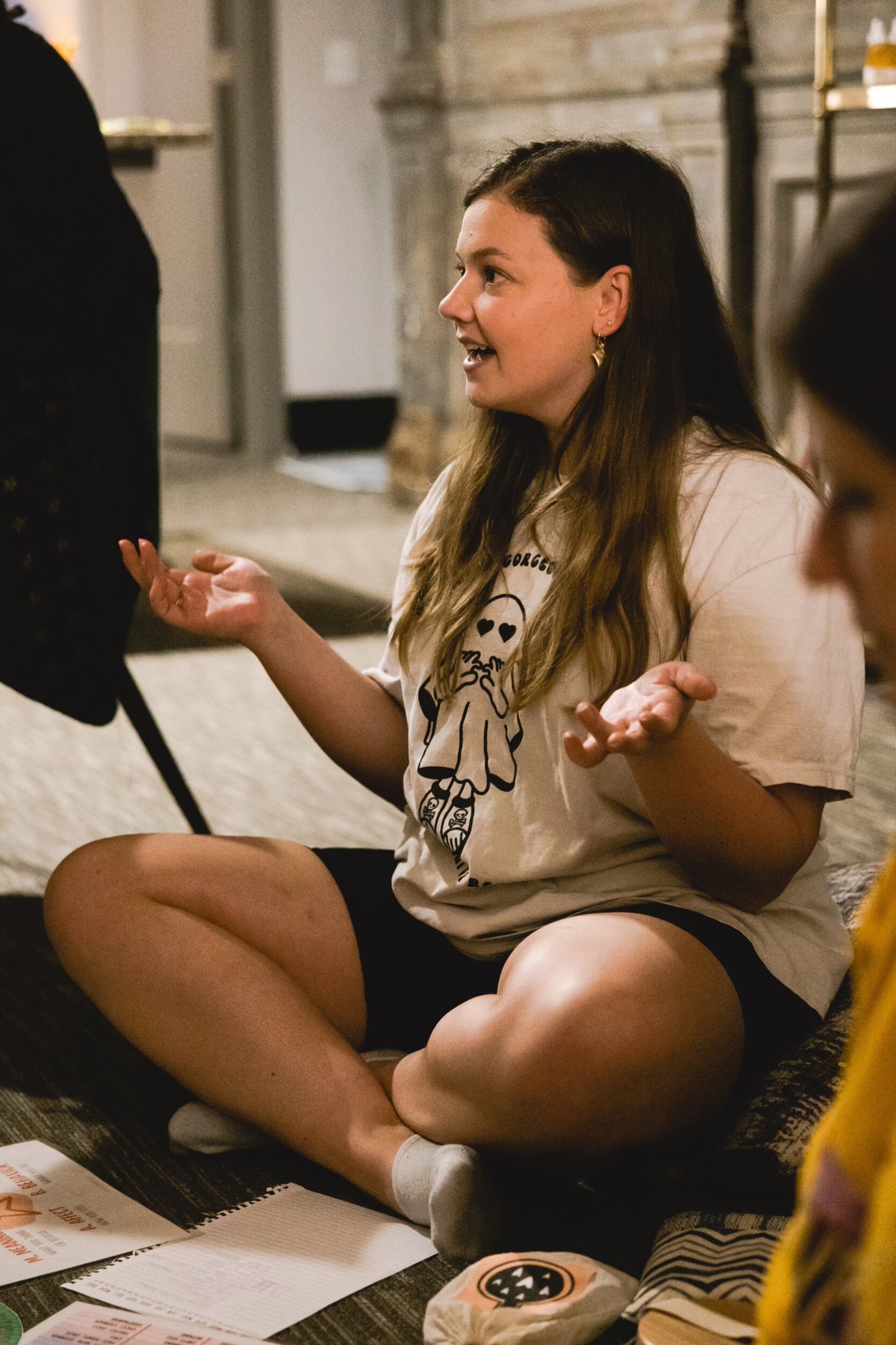Introducing Hannah Milks ★
Introducing Hannah Milks ★
Hi! I’m Hannah (she/her), founder of Clever Babes Co.
I’m a queer Somatic Practitioner and Trauma Informed Designer.
My goal is to create practical, everyday products that help people live more comfortably in their bodies. I pull inspiration from my therapy sessions, conversations with friends, and training in Somatic Experiencing®. Many of my designs are things I wish I could get on a rooftop and shout at the world. Just because I had to learn this lesson the hard (and expensive) way doesn’t mean we all do!
My hope is that the quirky and clever things I design make having conversations about mental health, self care, and body positivity easier. I believe design is a tool for advocacy. I am advocating for a world where it is safe for all people (but specifically marginalized people who identify as: disabled, queer, trans, black, brown, immigrant, indigenous, chronically ill, and etc) to be present and comfortable in their bodies.
I share about my healing, design process, queerness, and more on Instagram if you want to learn more.
My Mission + Values for Clever Babes Co:
My mission is to design practical, everyday products and somatic resources that help people live more comfortably in their bodies.
This looks like:
starting conversations about mental health
this includes commentary on systems of oppression that hurt mental health and make embodiment unsafe
destigmatizing emotions
affirming identity
prioritizing physical comfort
teaching somatic self care skills
empowering people to “trust their gut”
creating opportunities for community building
practicing informed consent
aiding in the healing* process
*The healing process is different for everyone but typically includes identifying harmful behavior patterns, setting boundaries, connecting with your body, improving body image, reducing stressors in your life, etc. It can involve therapy, but therapy is not the only way to engage in healing.
I value compassion, genuineness, and non-conformity.
Compassion- I have deep sympathy for others experiencing suffering. I create products and services that validate how painful living can be, and aim to help make self care easier and more fun while coping with hardship. I use humor and playfulness as a reminder that laughter doesn’t invalidate grief- it eases the pain of it.
Genuineness- I share my life on social media, as well as my designs and the stories behind them, in a way that is sincere, free from pretense, affectation, and hypocrisy. I am not “done healing” and I strive to present myself as an imperfect human who is always learning and growing. When I make mistakes I am open to accountability and appreciate the opportunity to apologize.
Non-Conformity- I challenge norms set from systems that make embodiment difficult. Some of these systems are: capitalism, patriarchy, white supremacy, the military-industrial complex, and the prison-industrial complex. I do this by talking about things most people wouldn’t say out loud in fear of disrupting the status quo. The pressure to conform keeps us from having important conversations that create change in our own lives, and in our communities.
I used the Live Your Values Deck by Lisa Congdon to establish my values.
*break from reading for dog pics
Pip is orange and white + Margo is black and white
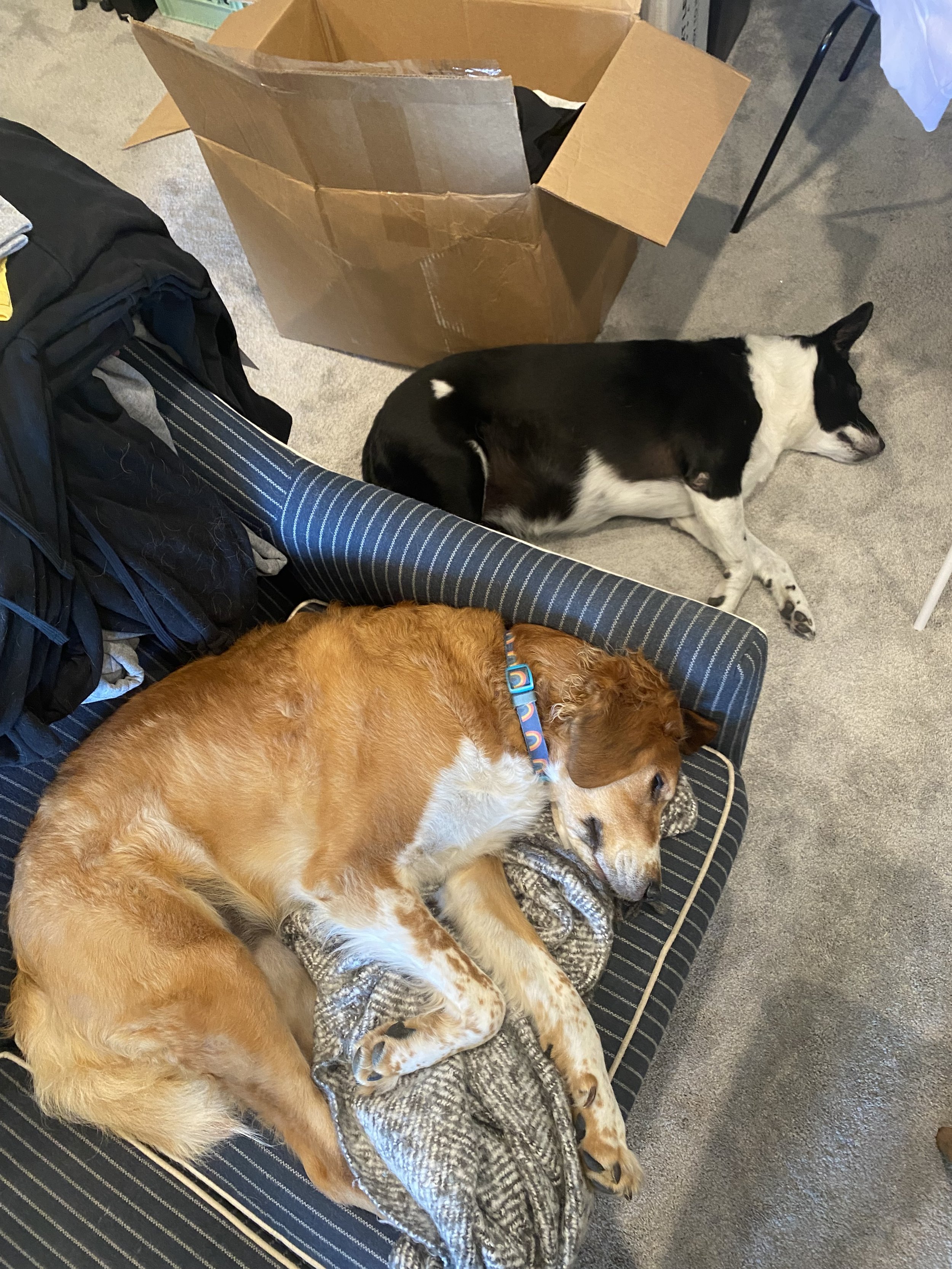
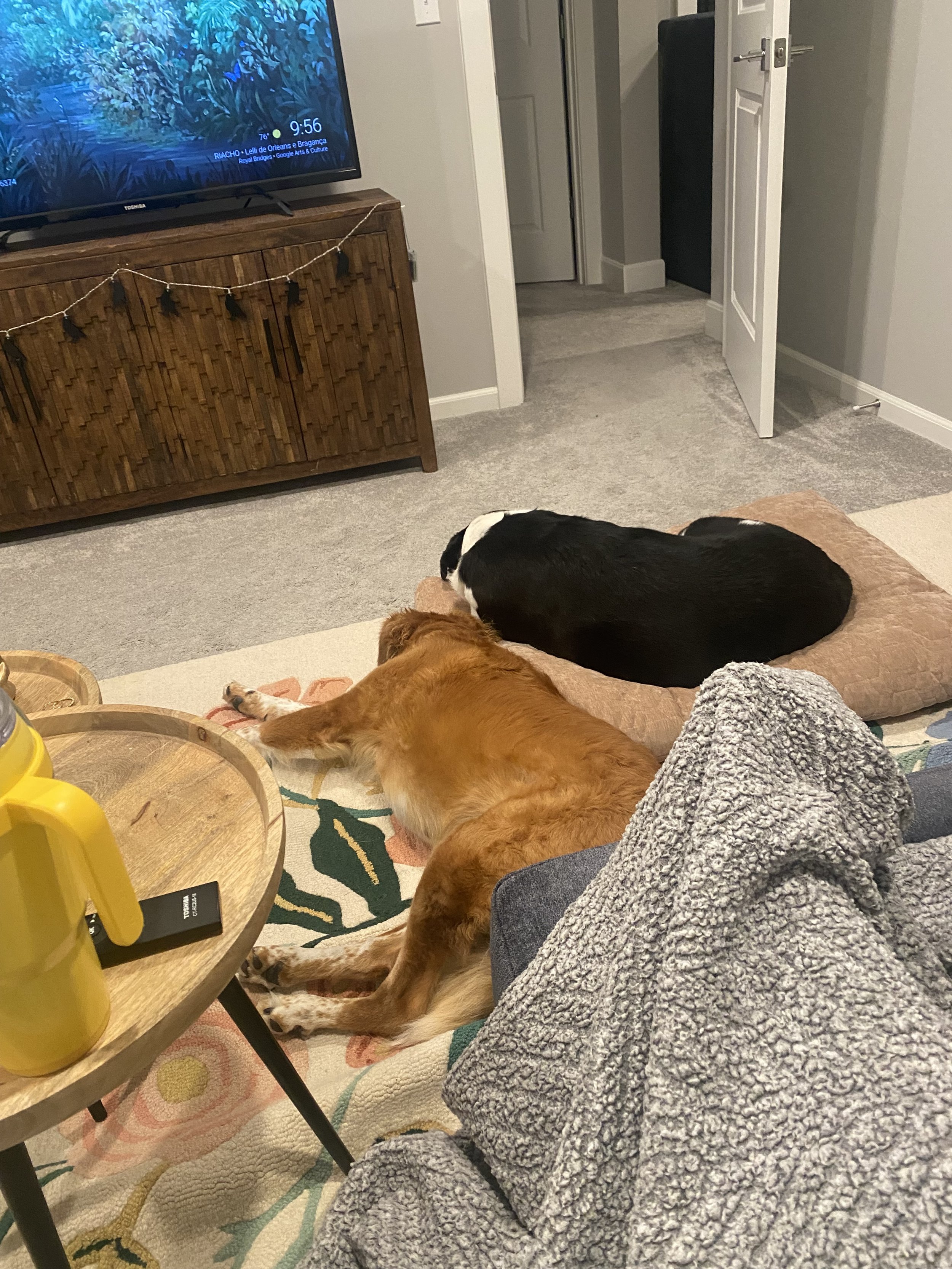
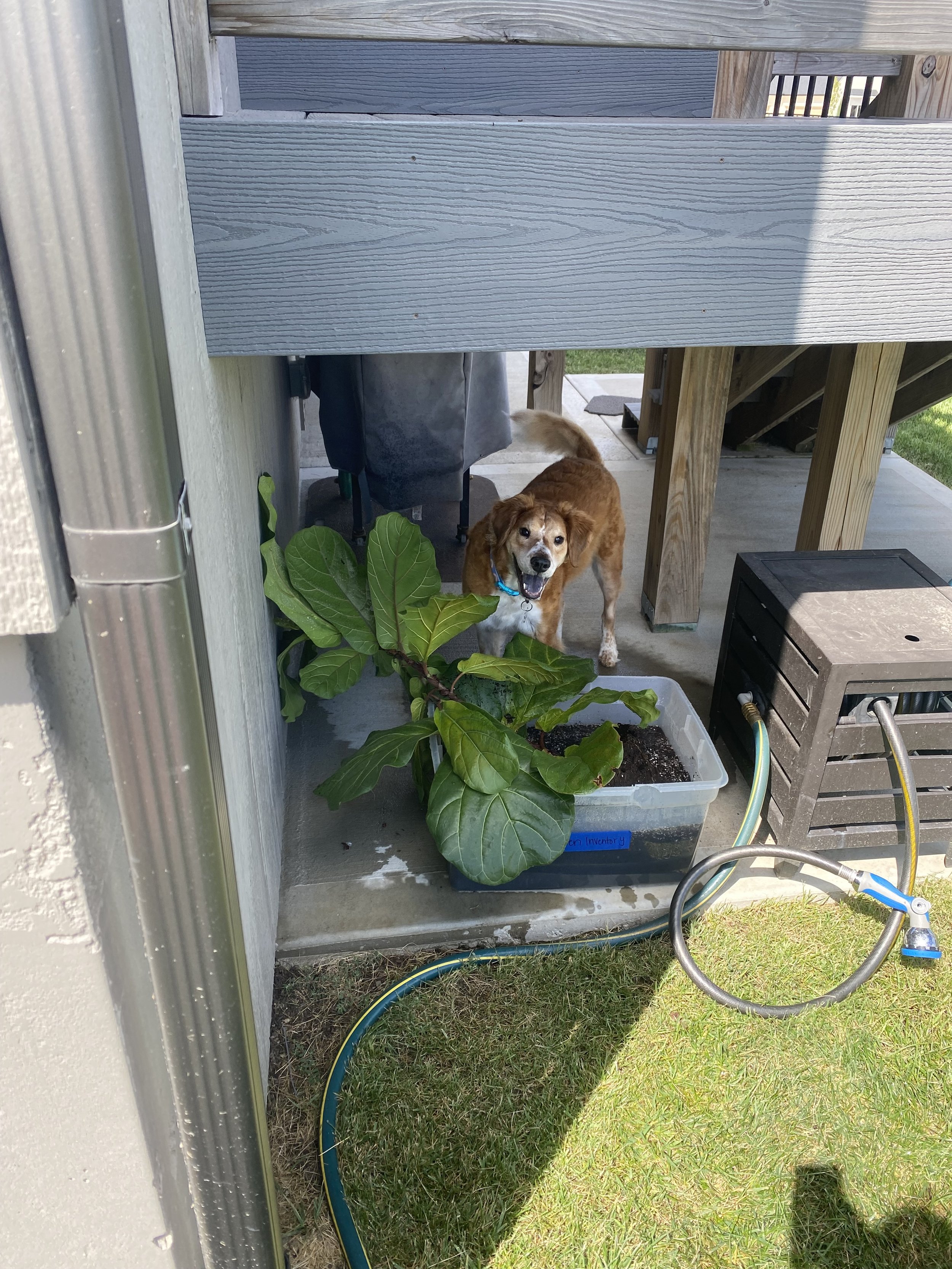
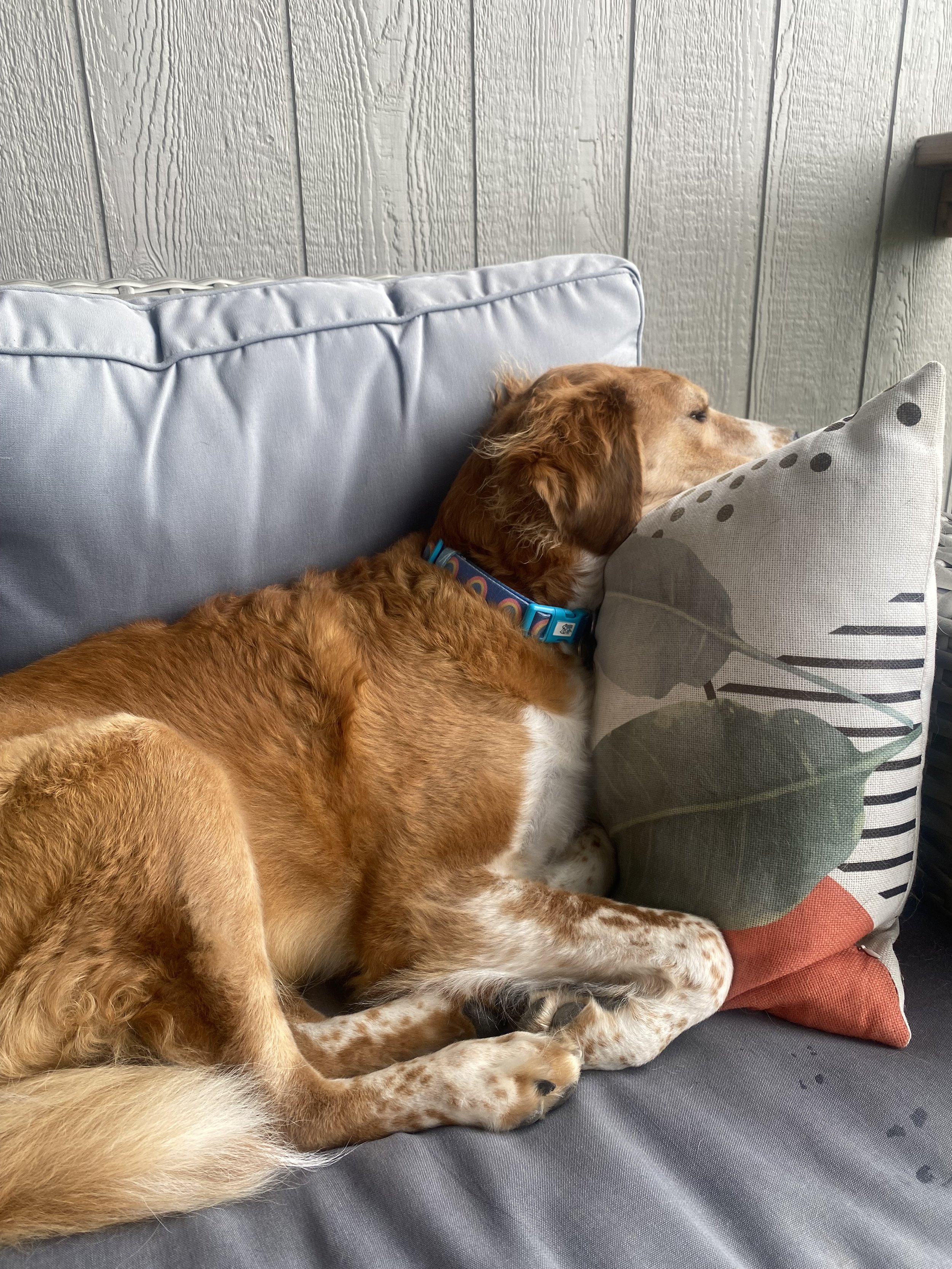
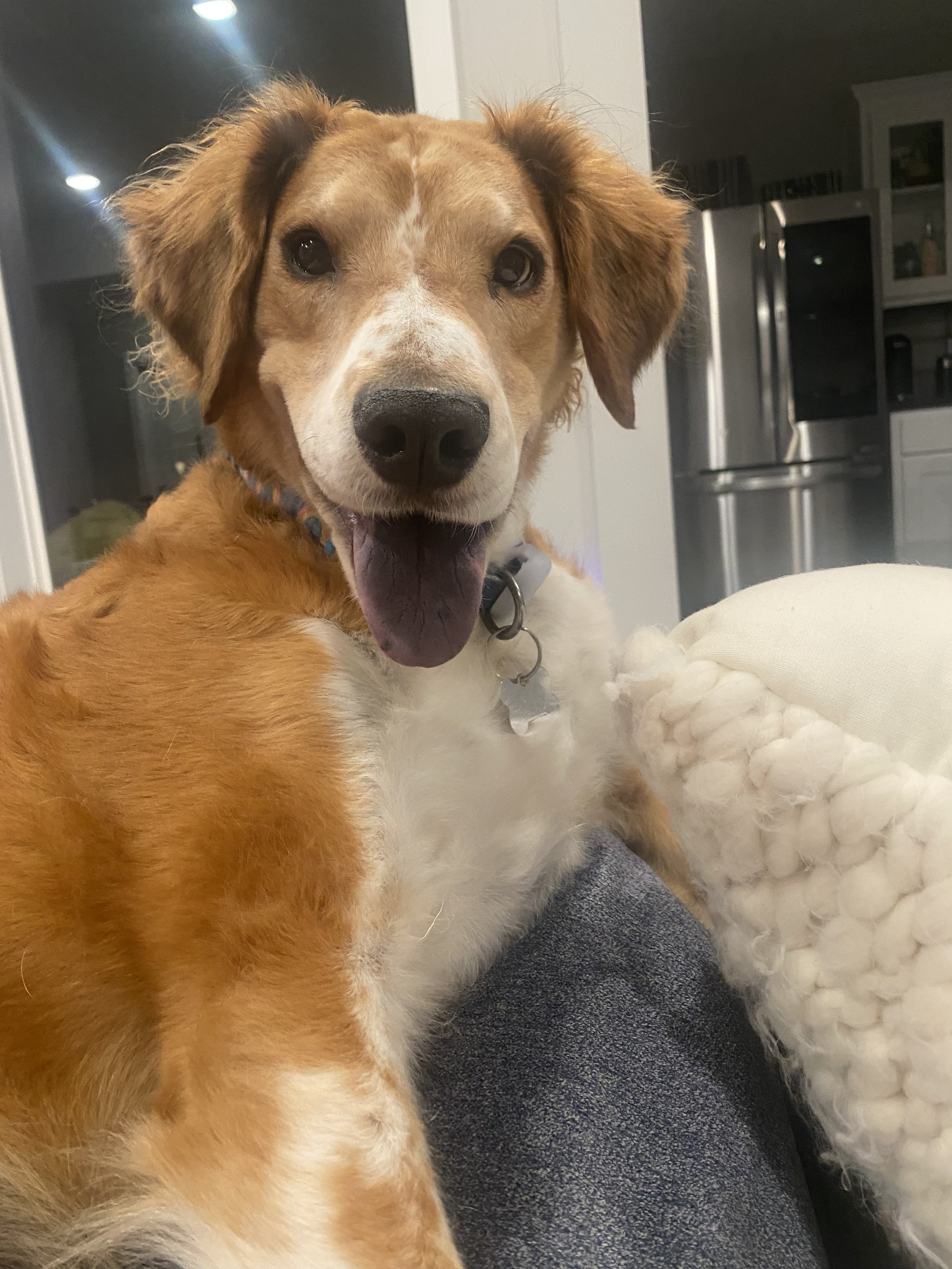
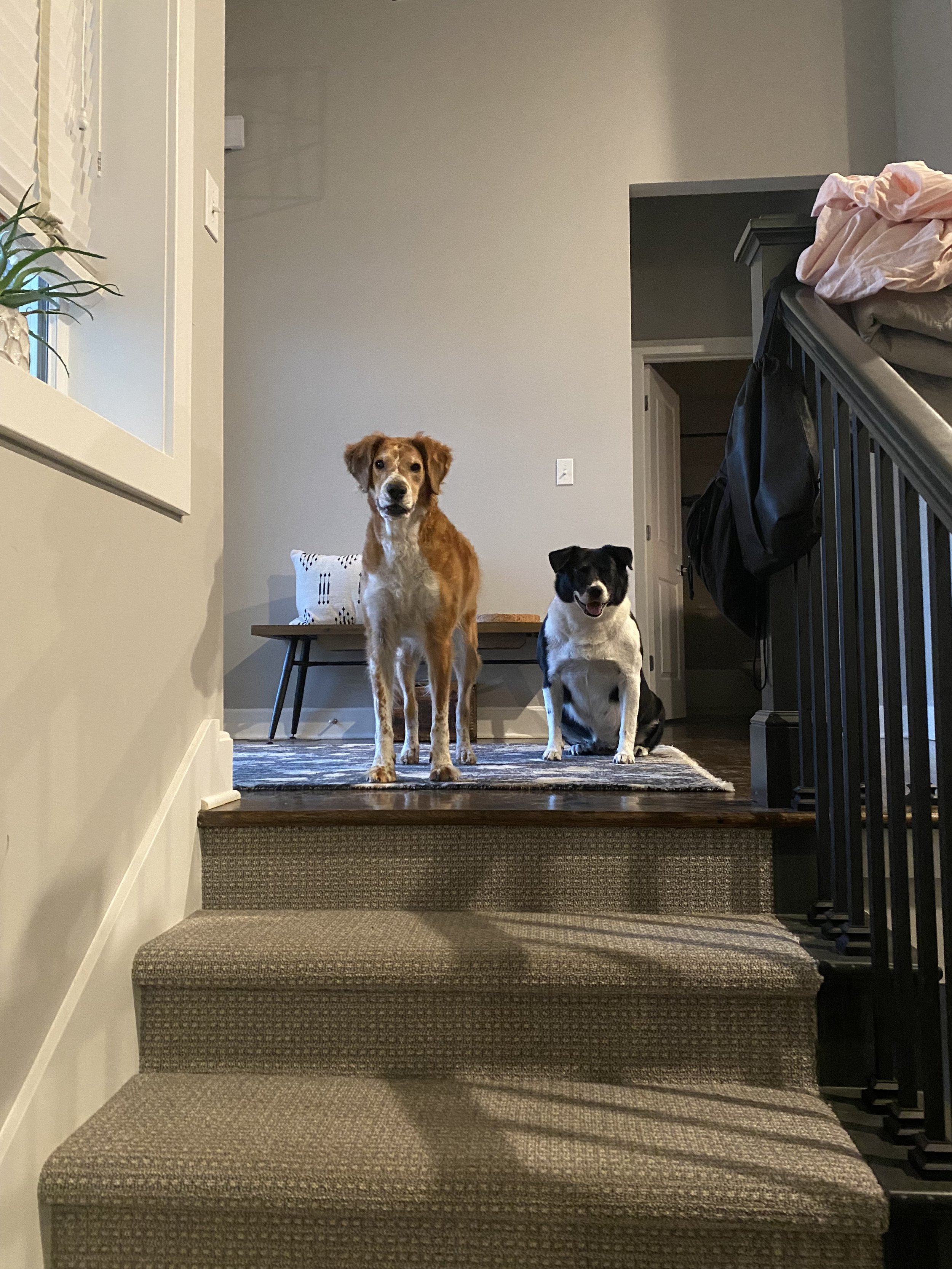
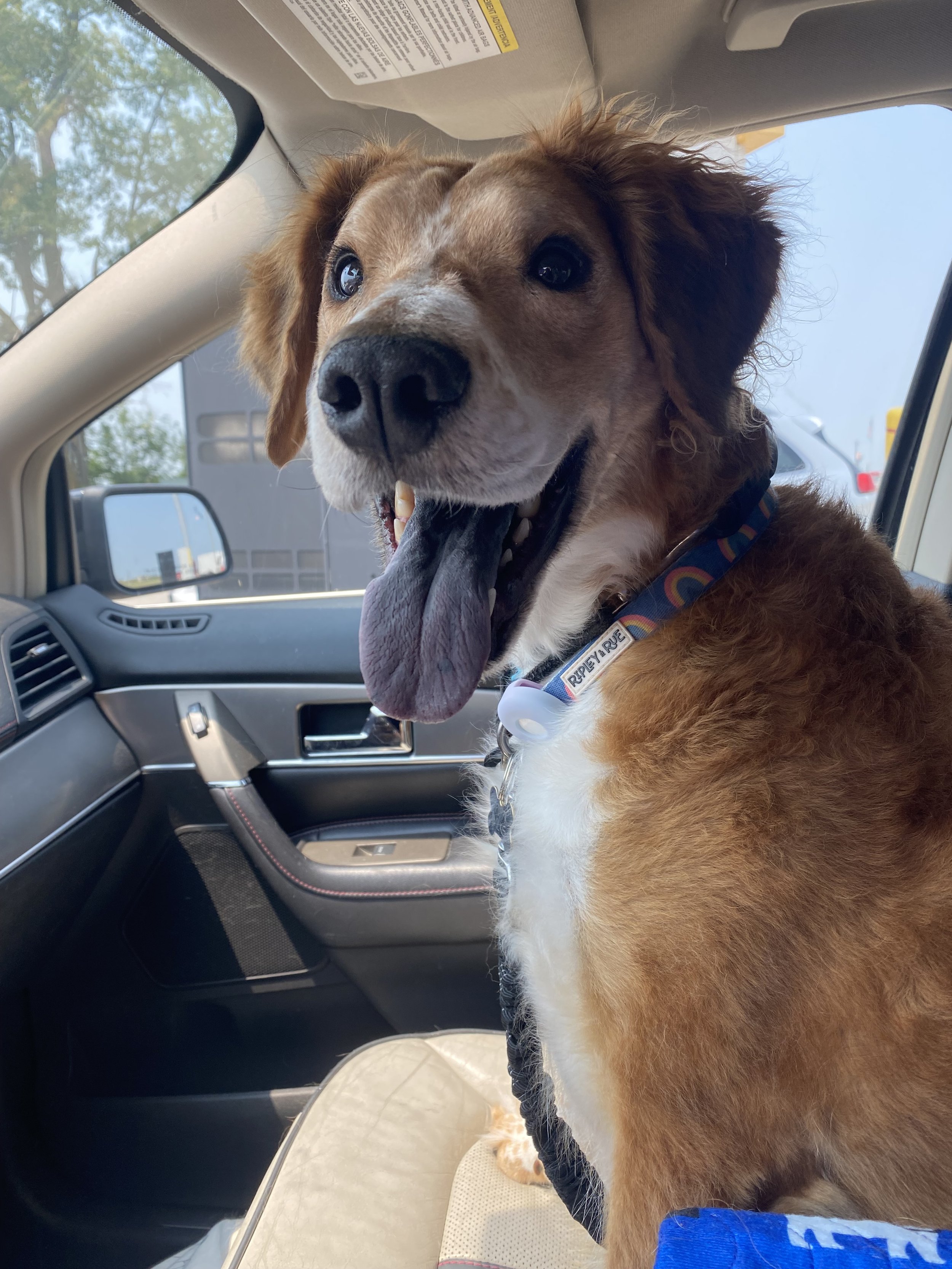
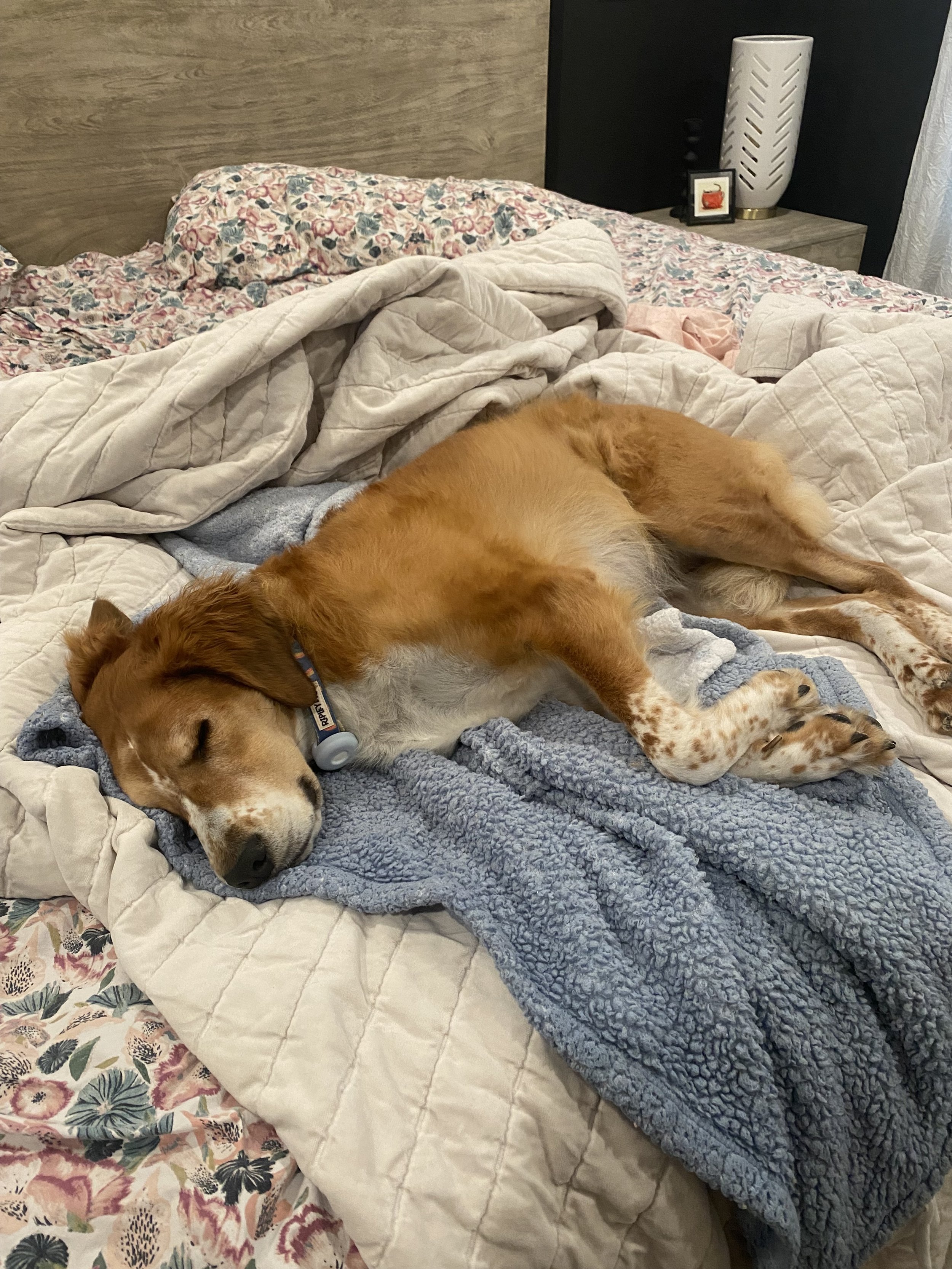
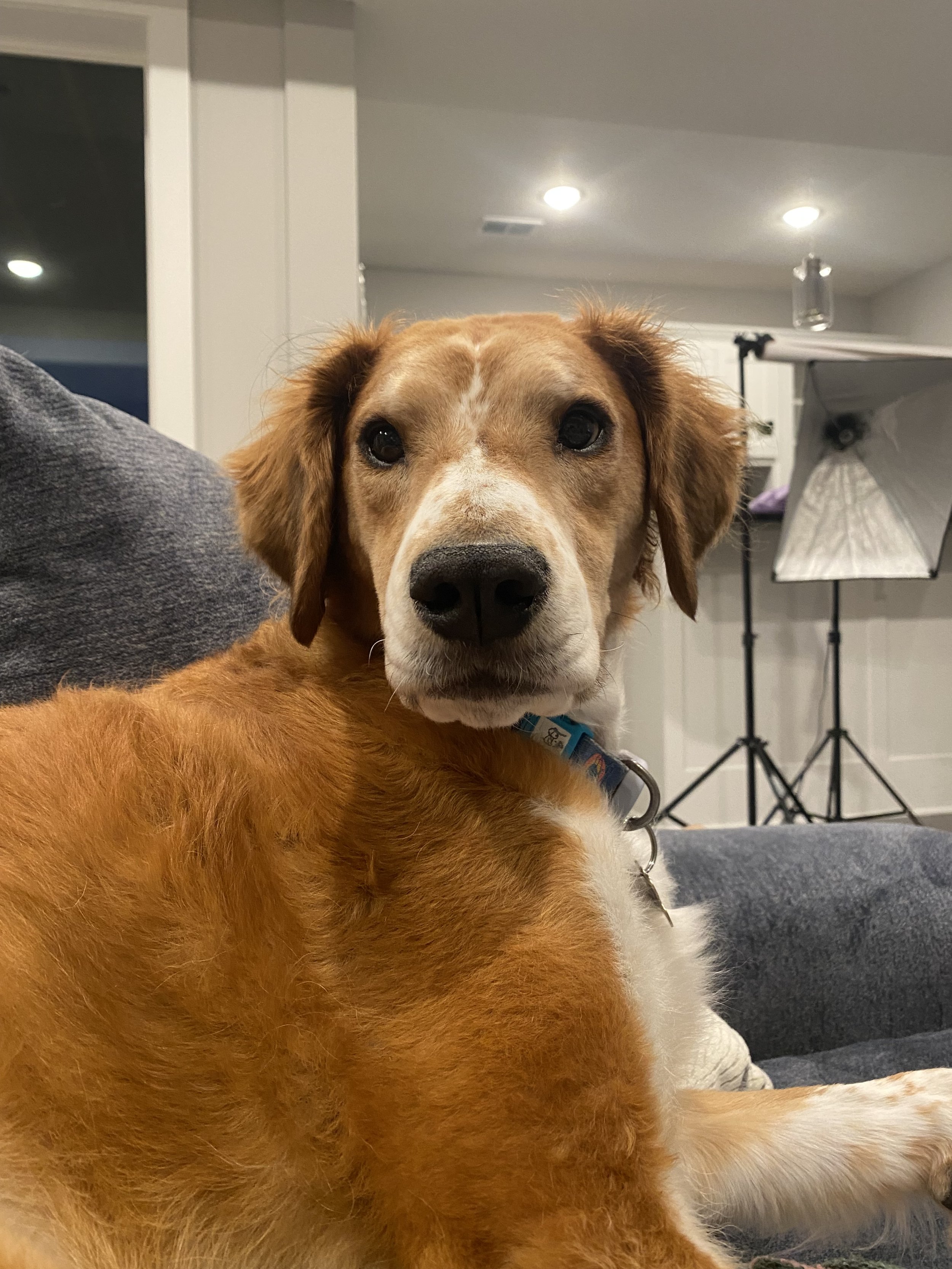
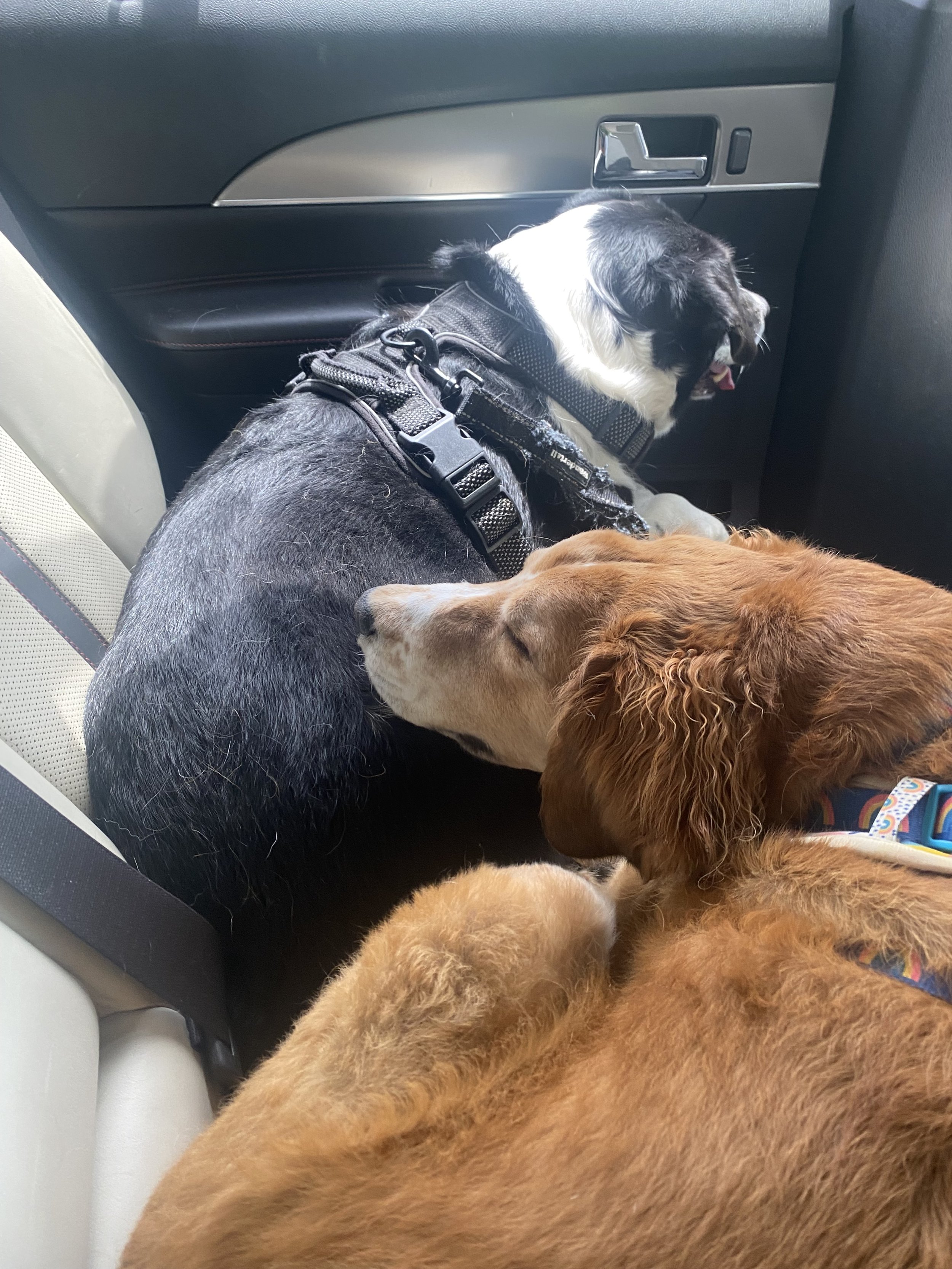
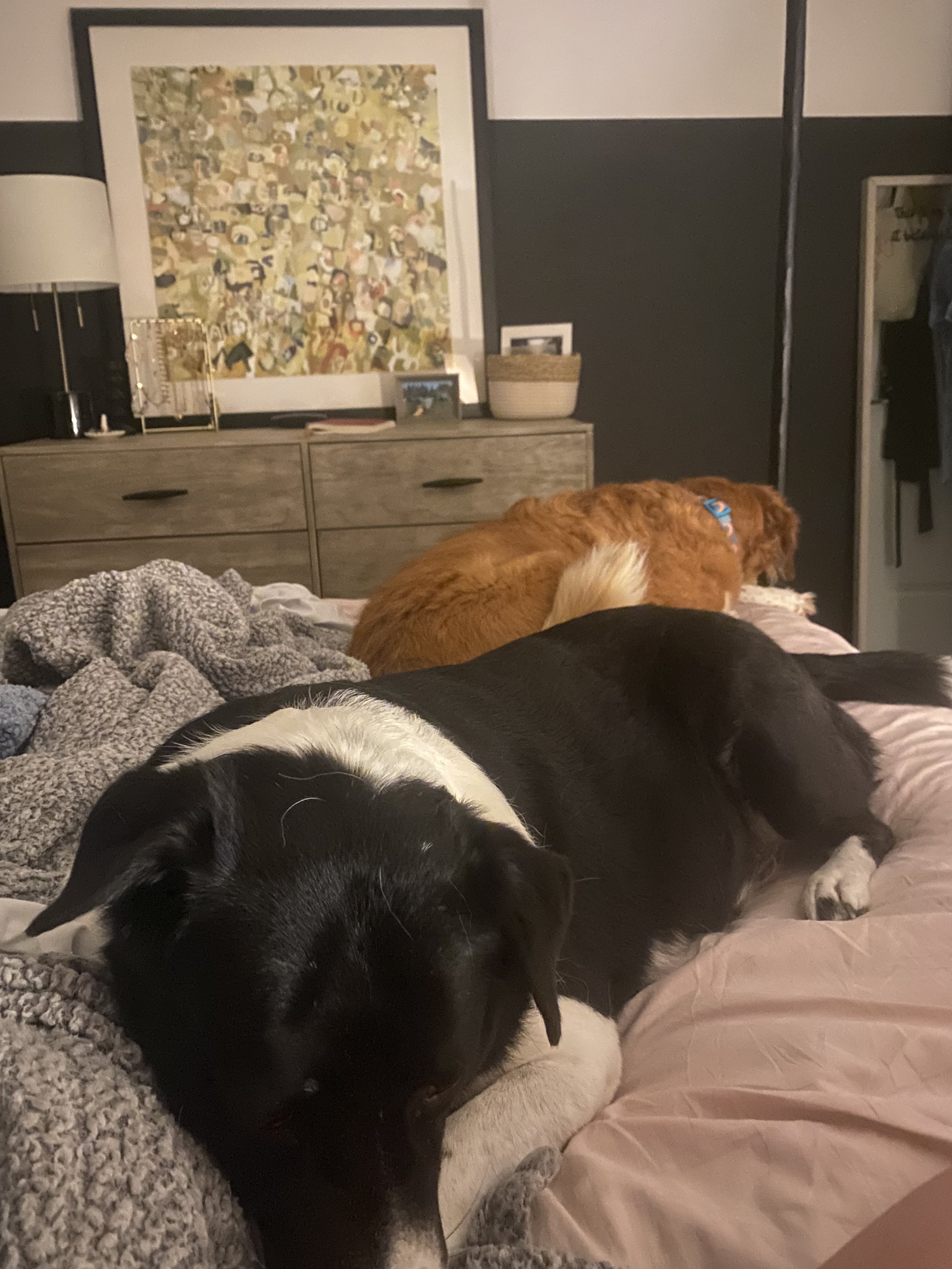
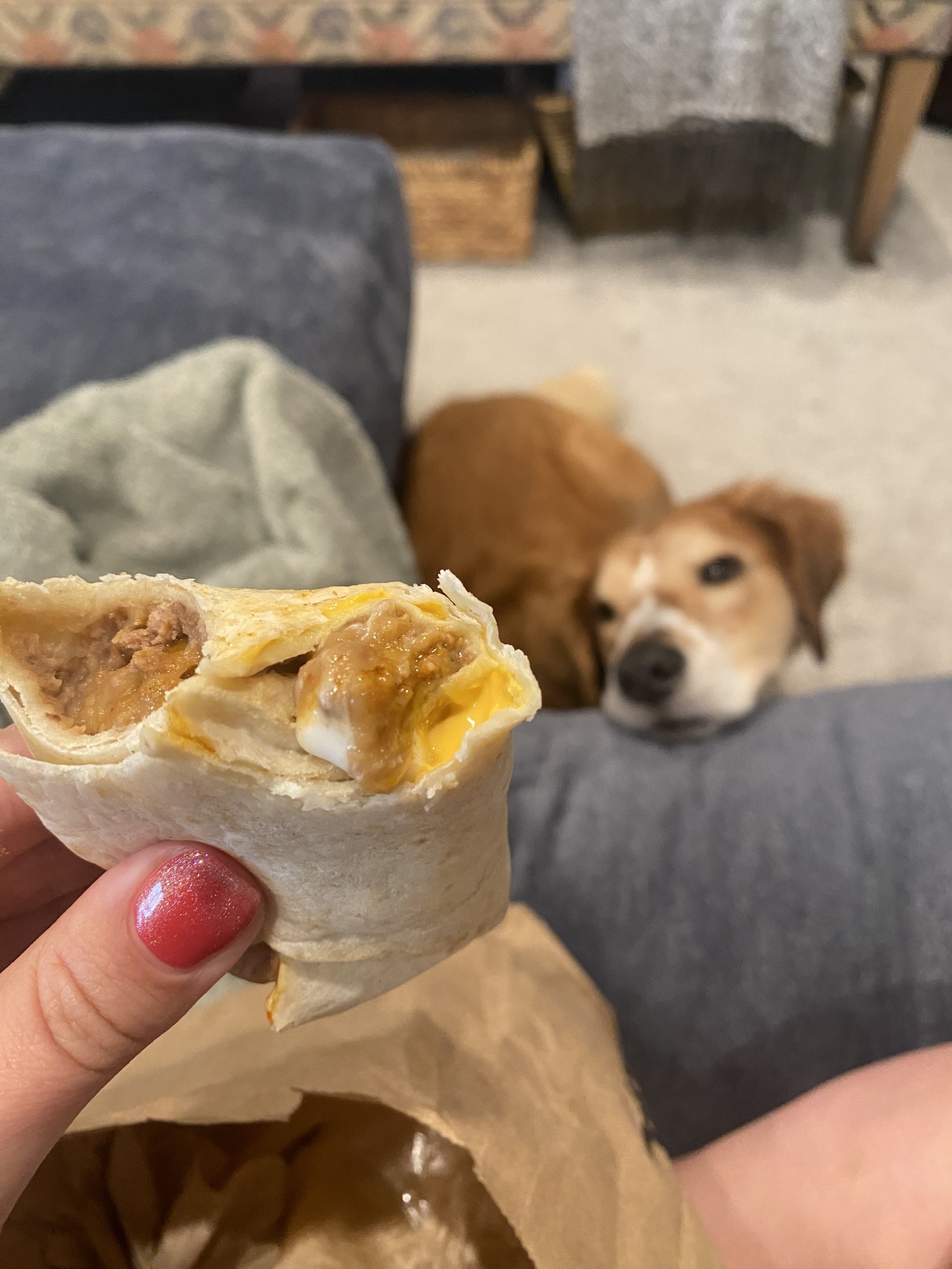
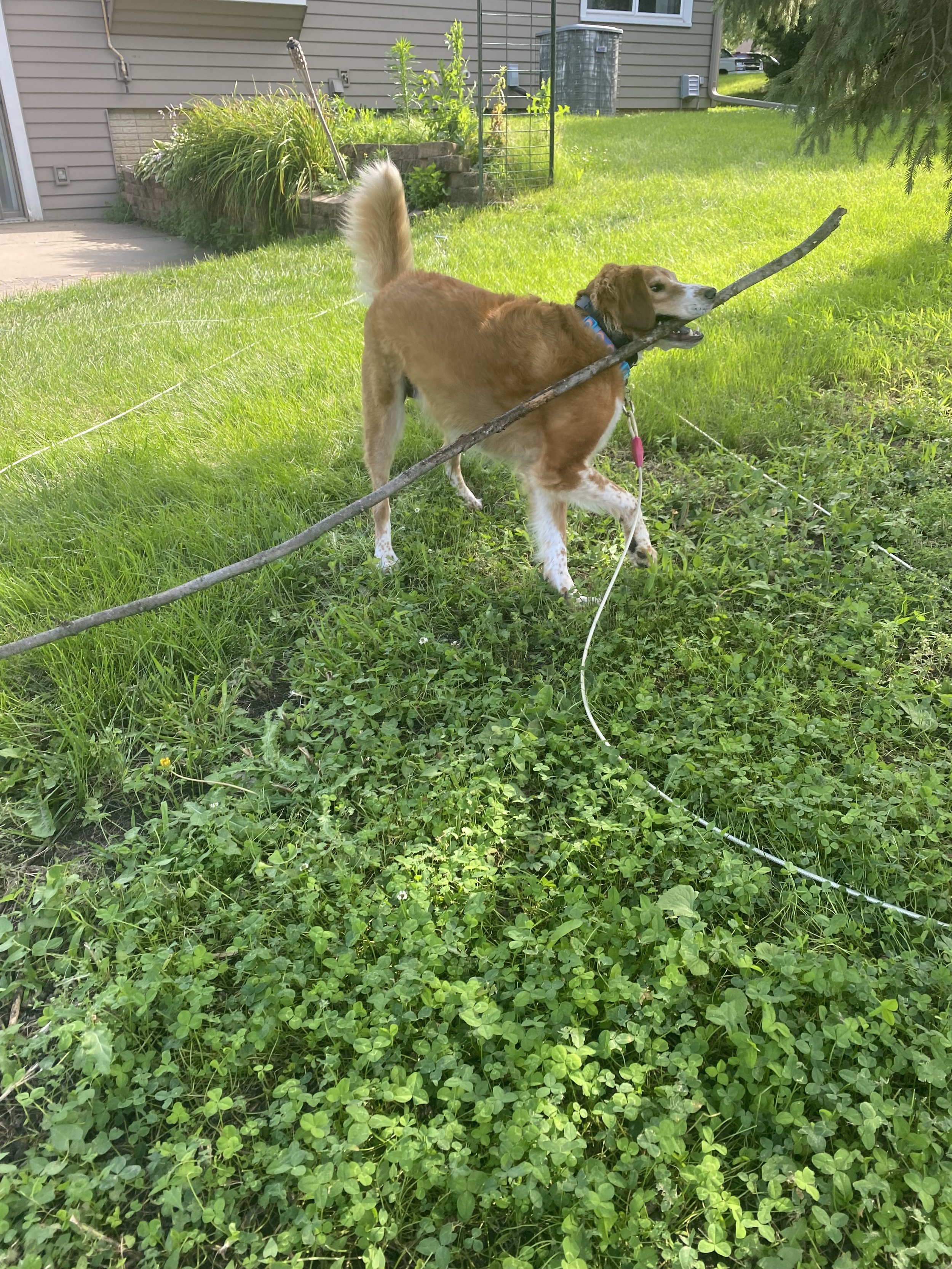
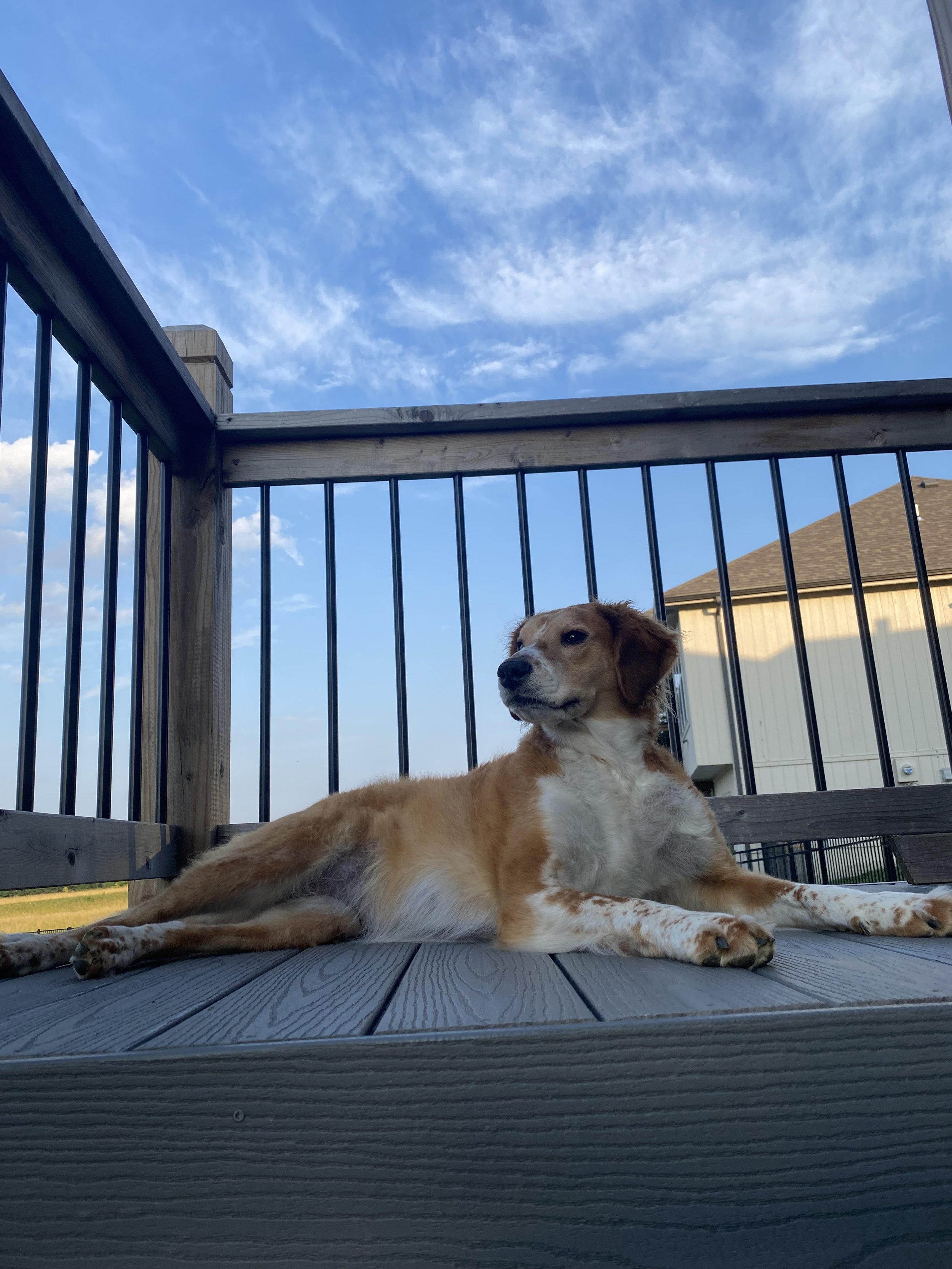
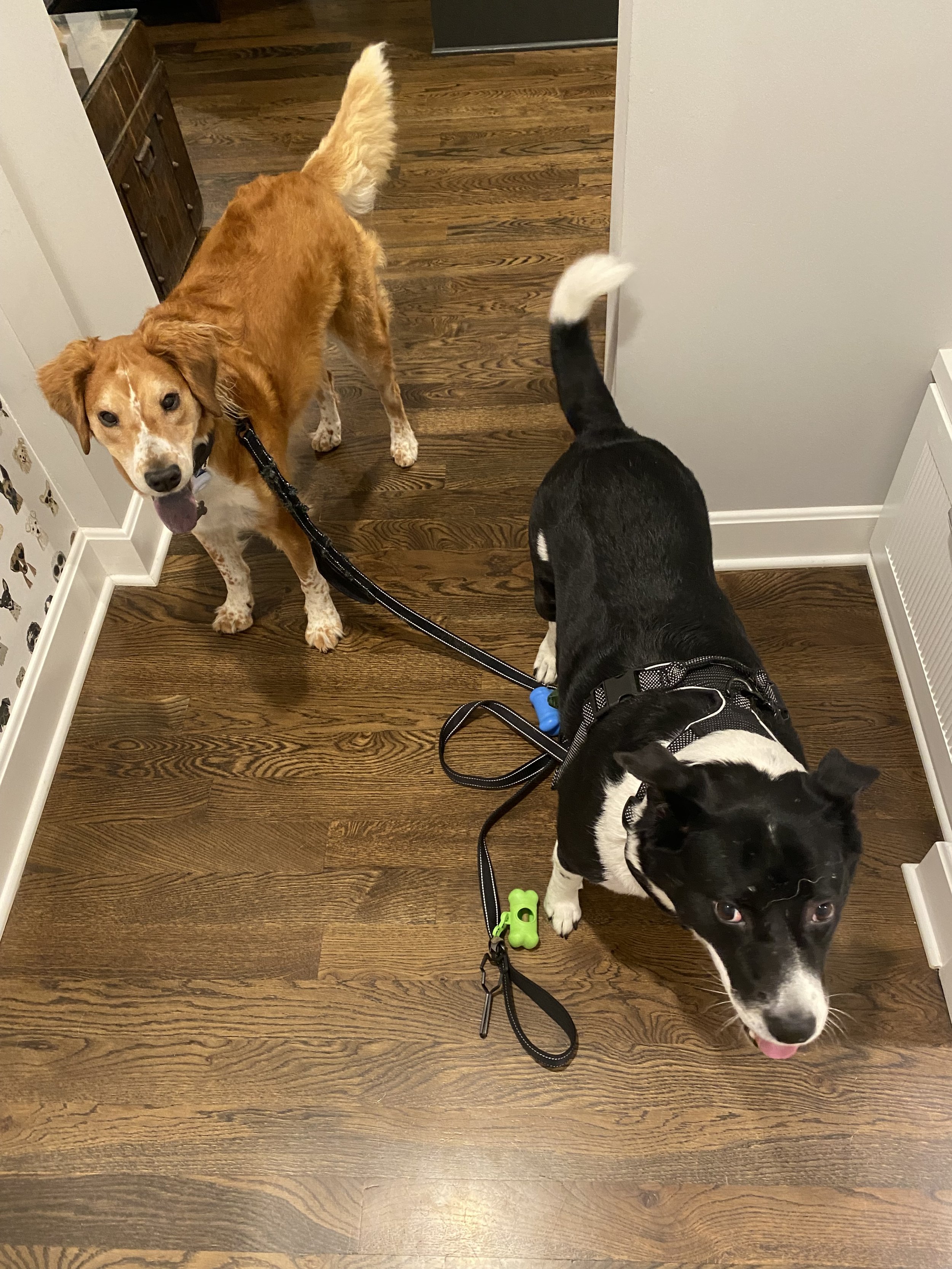
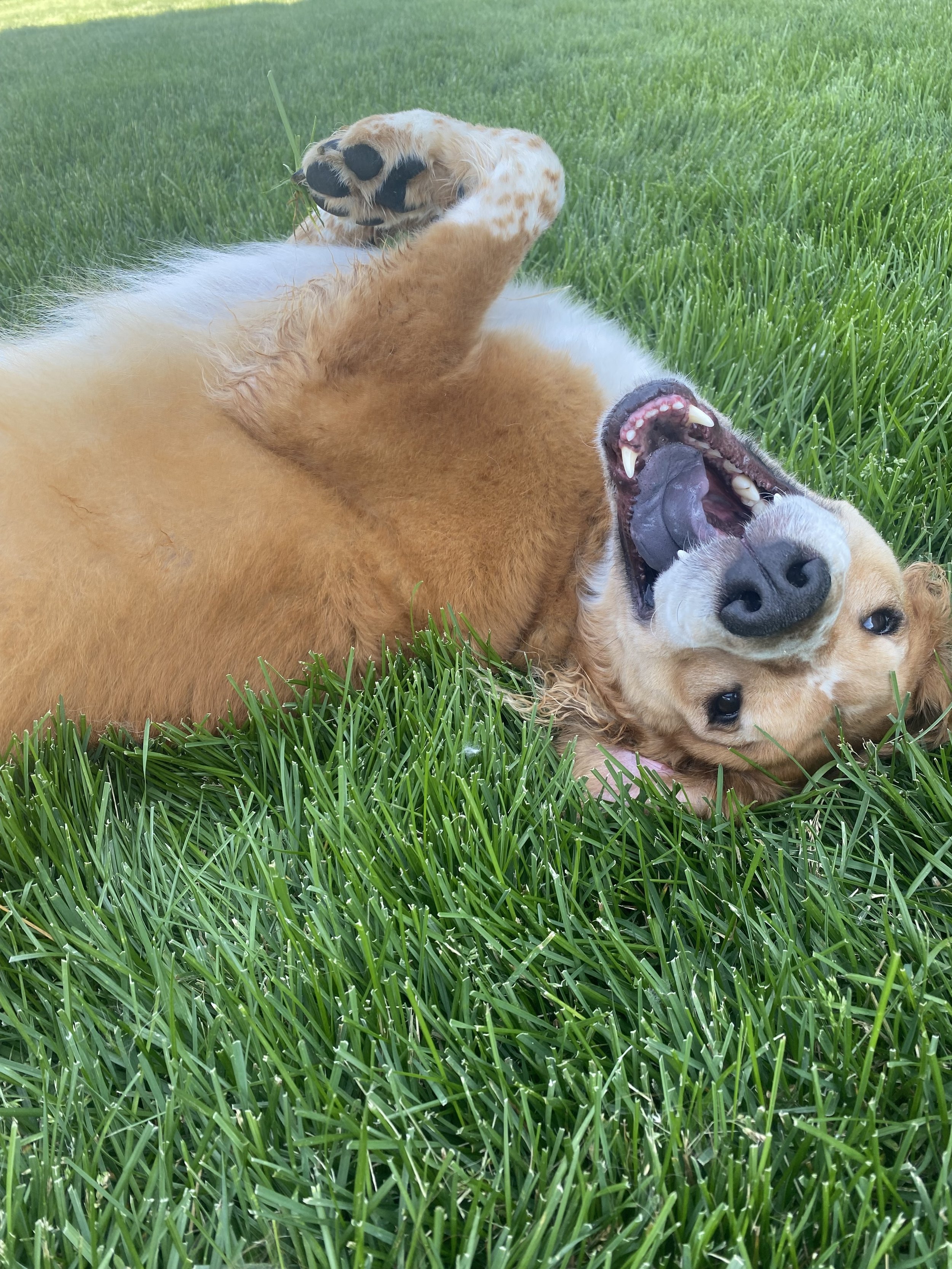

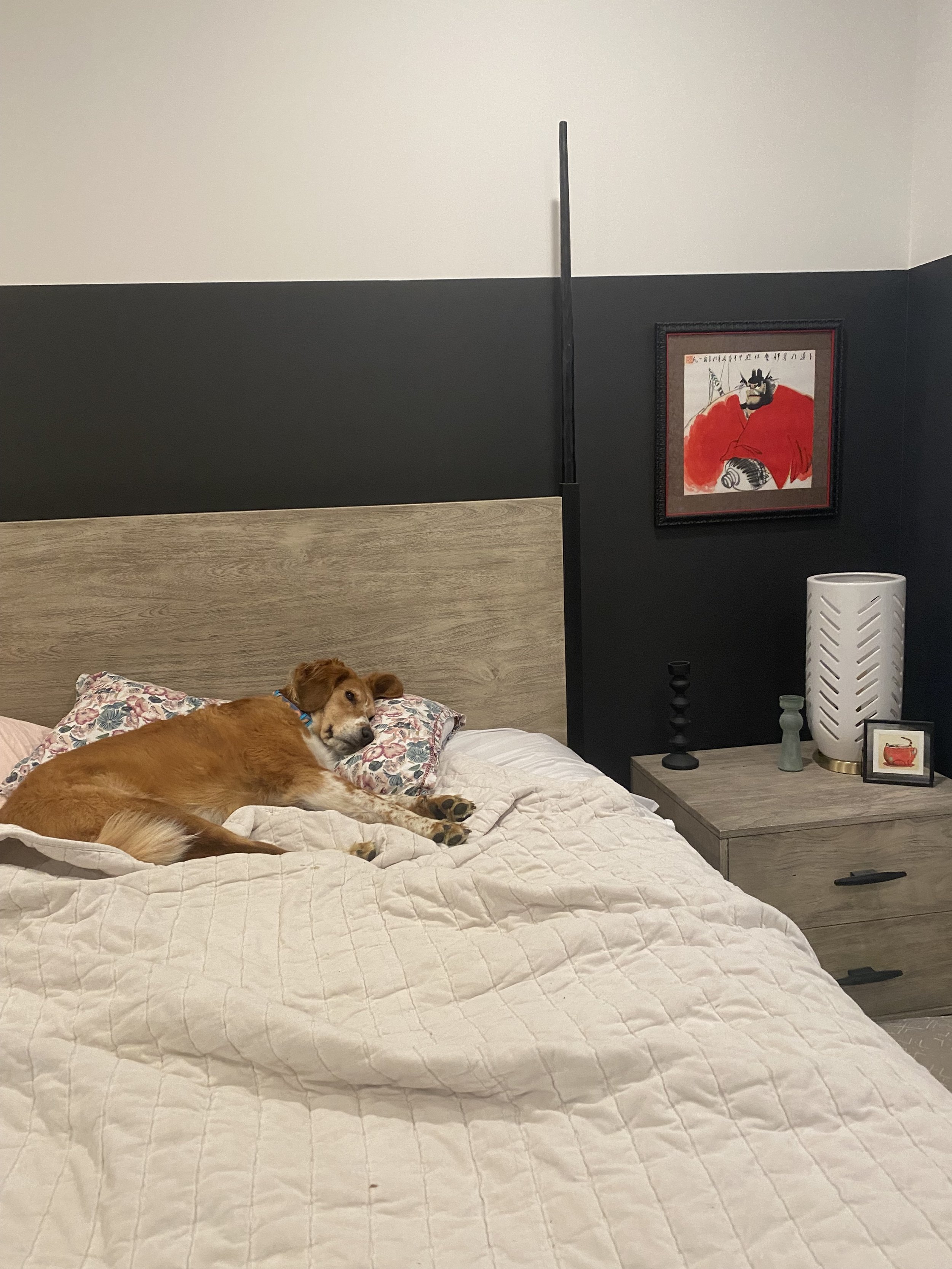
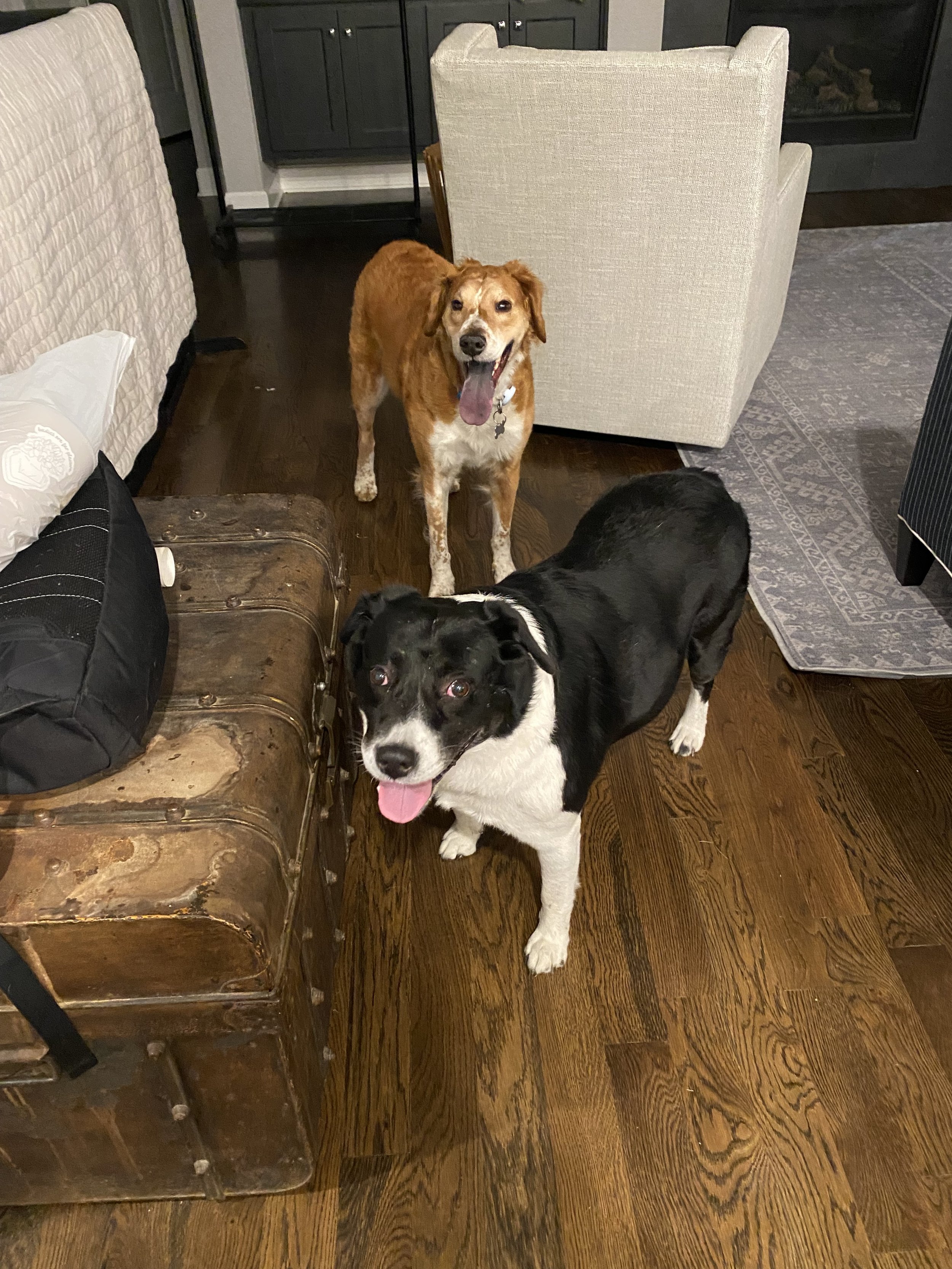

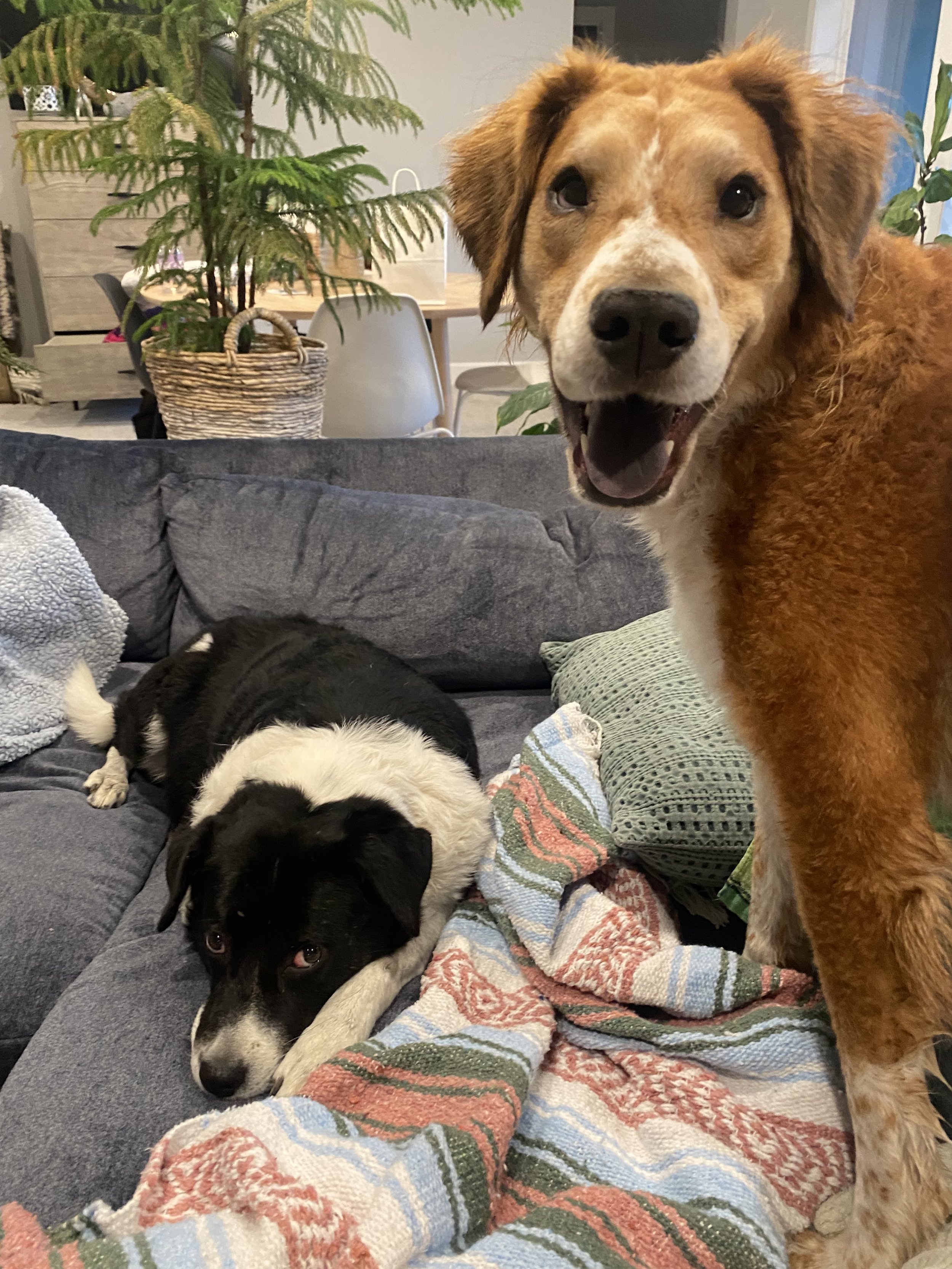
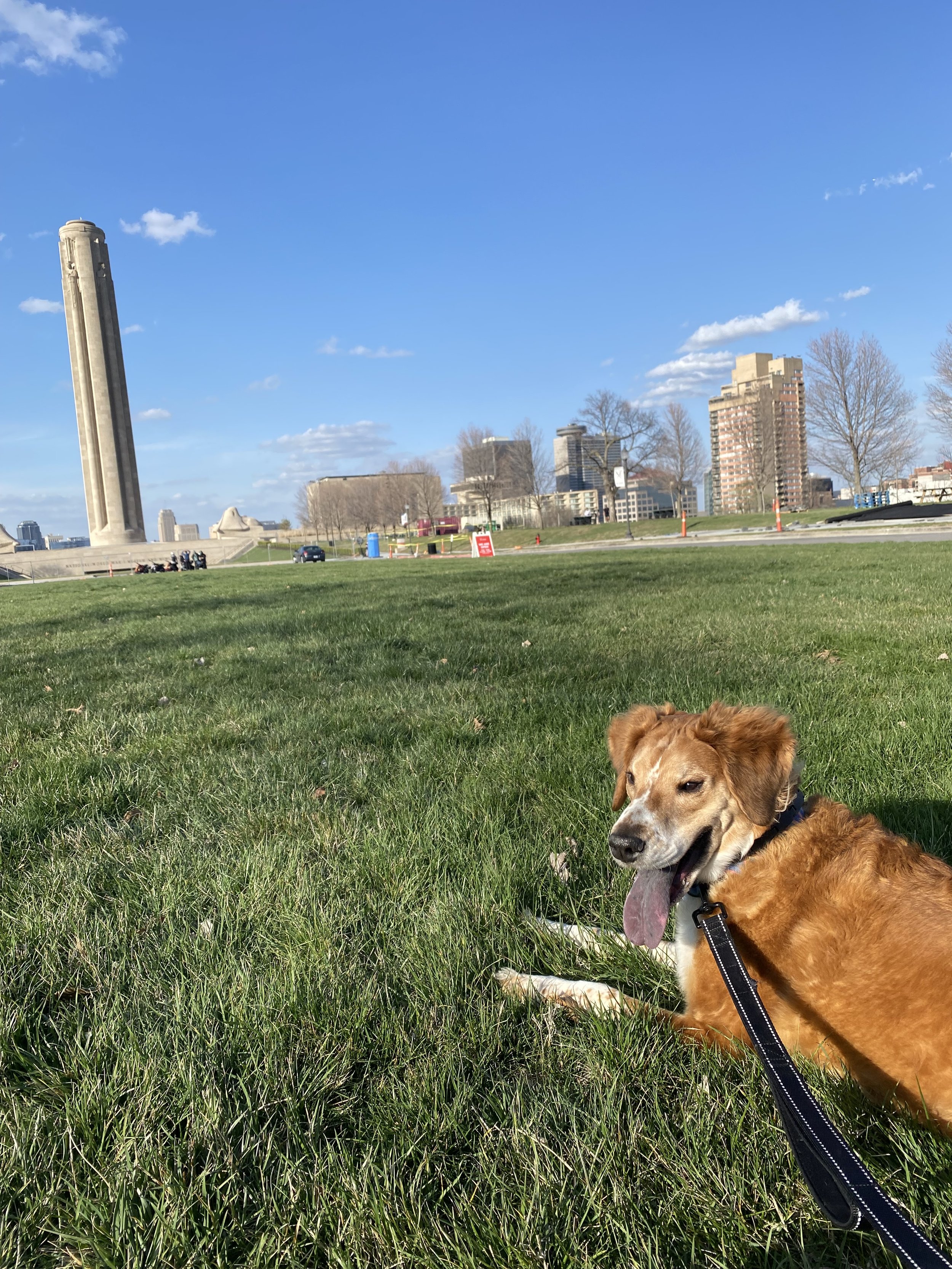
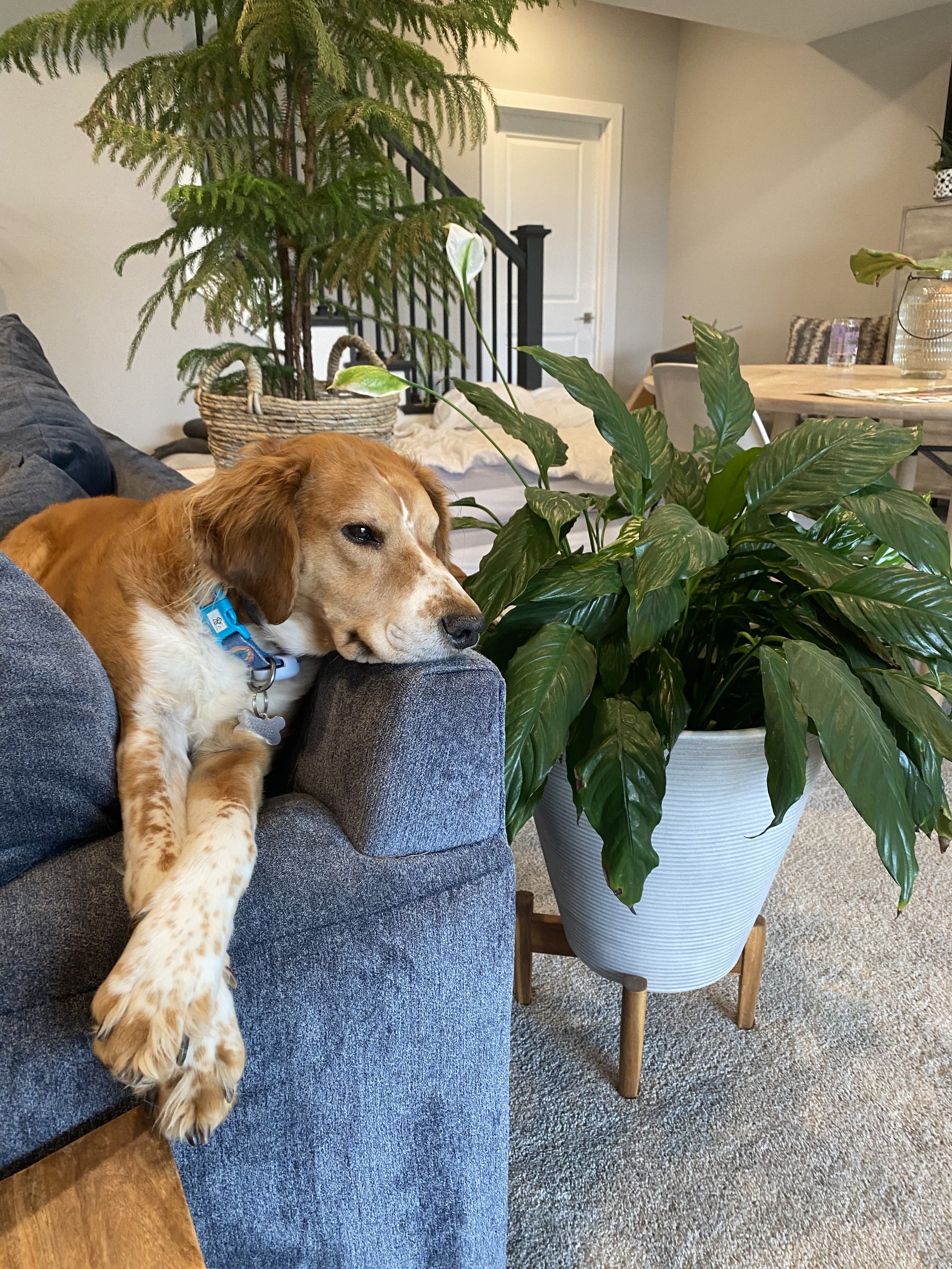
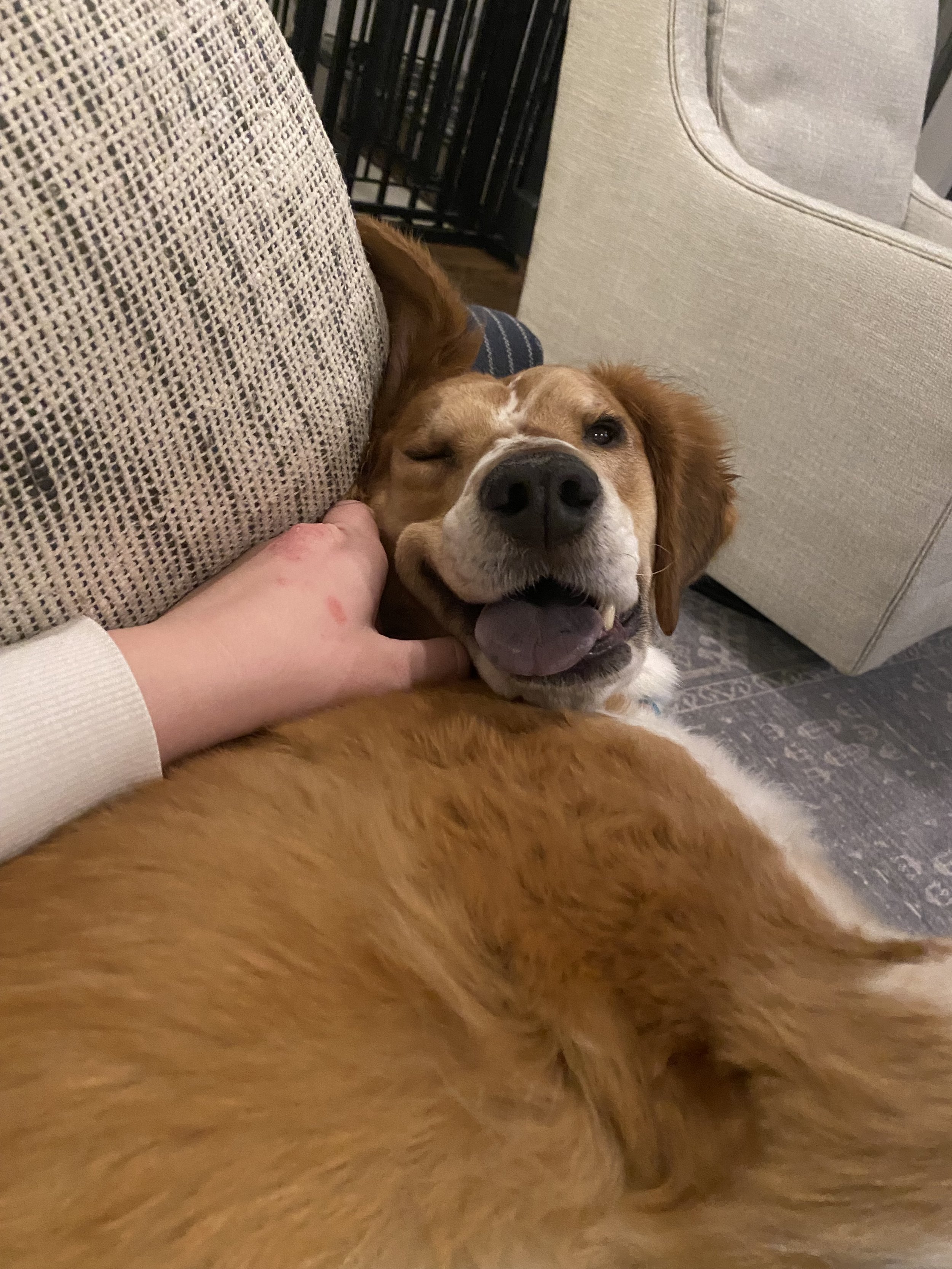
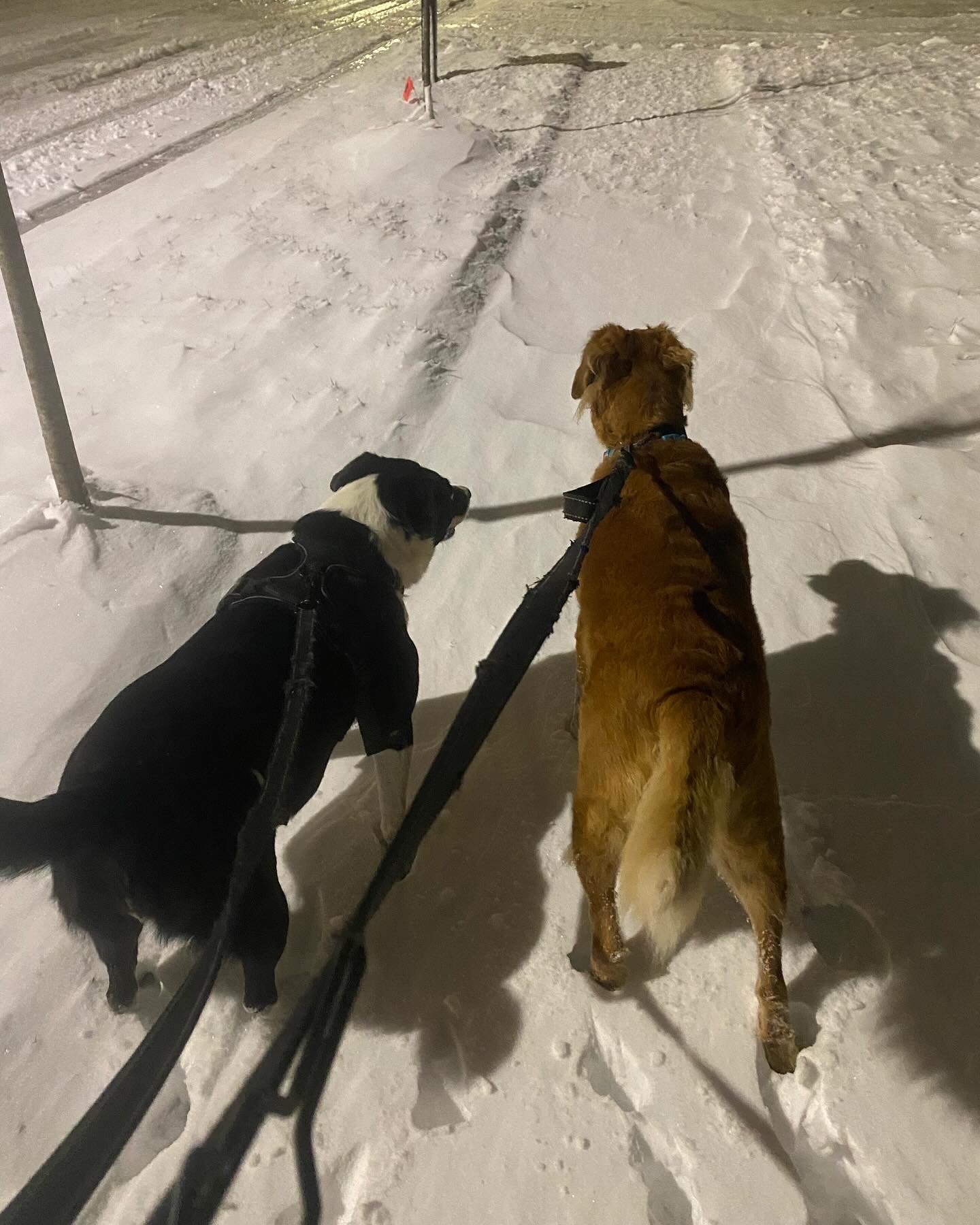
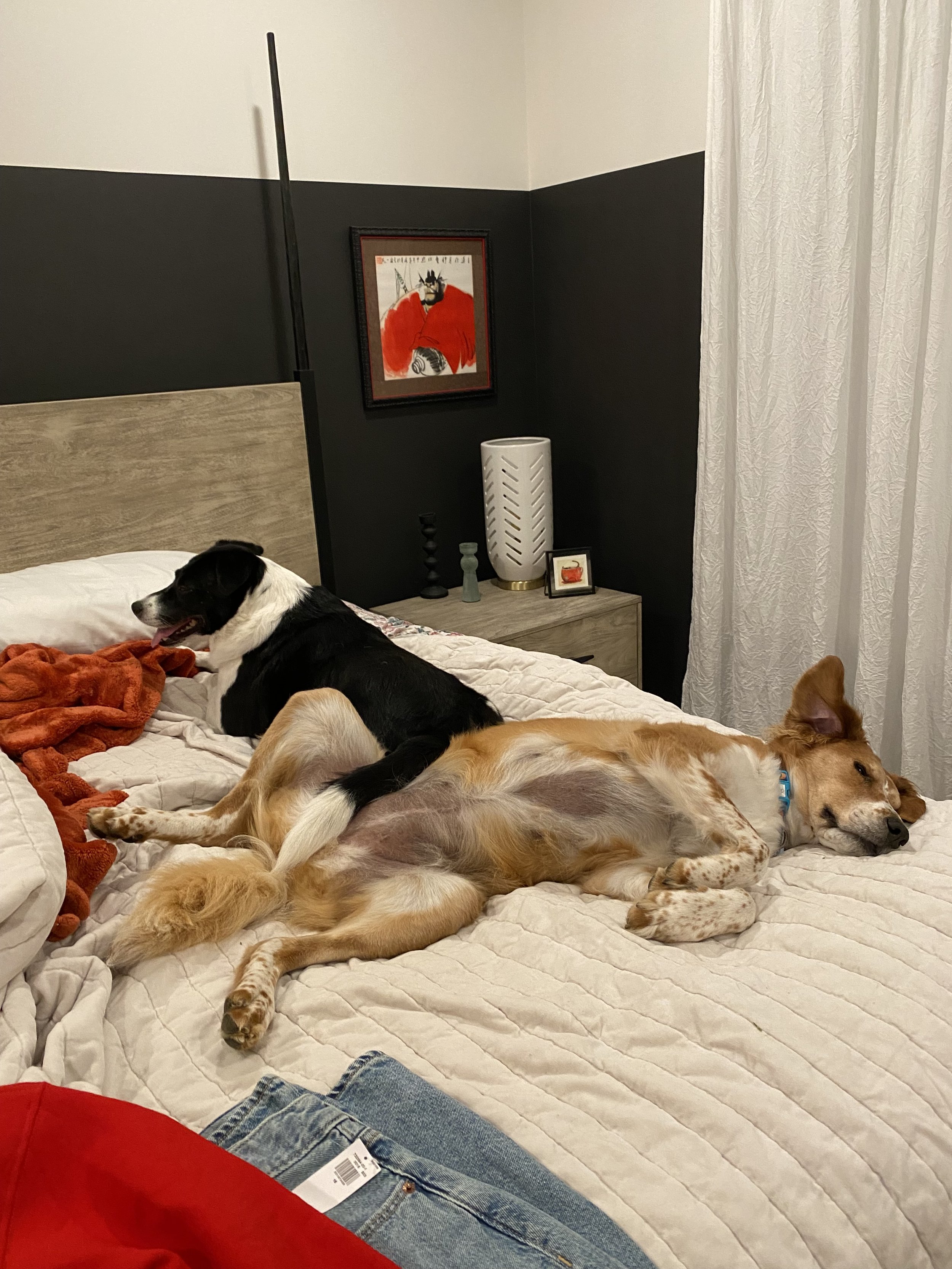
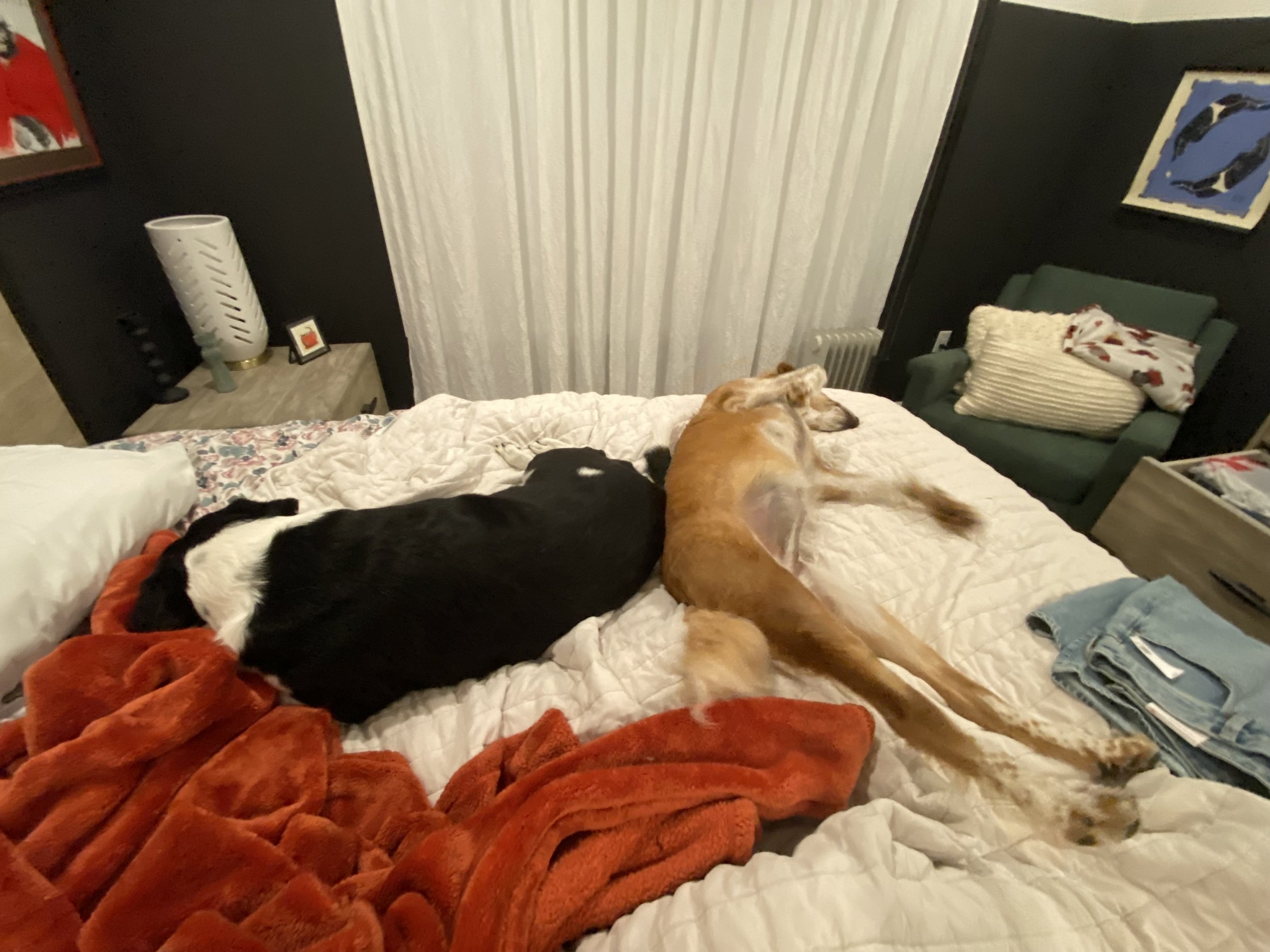
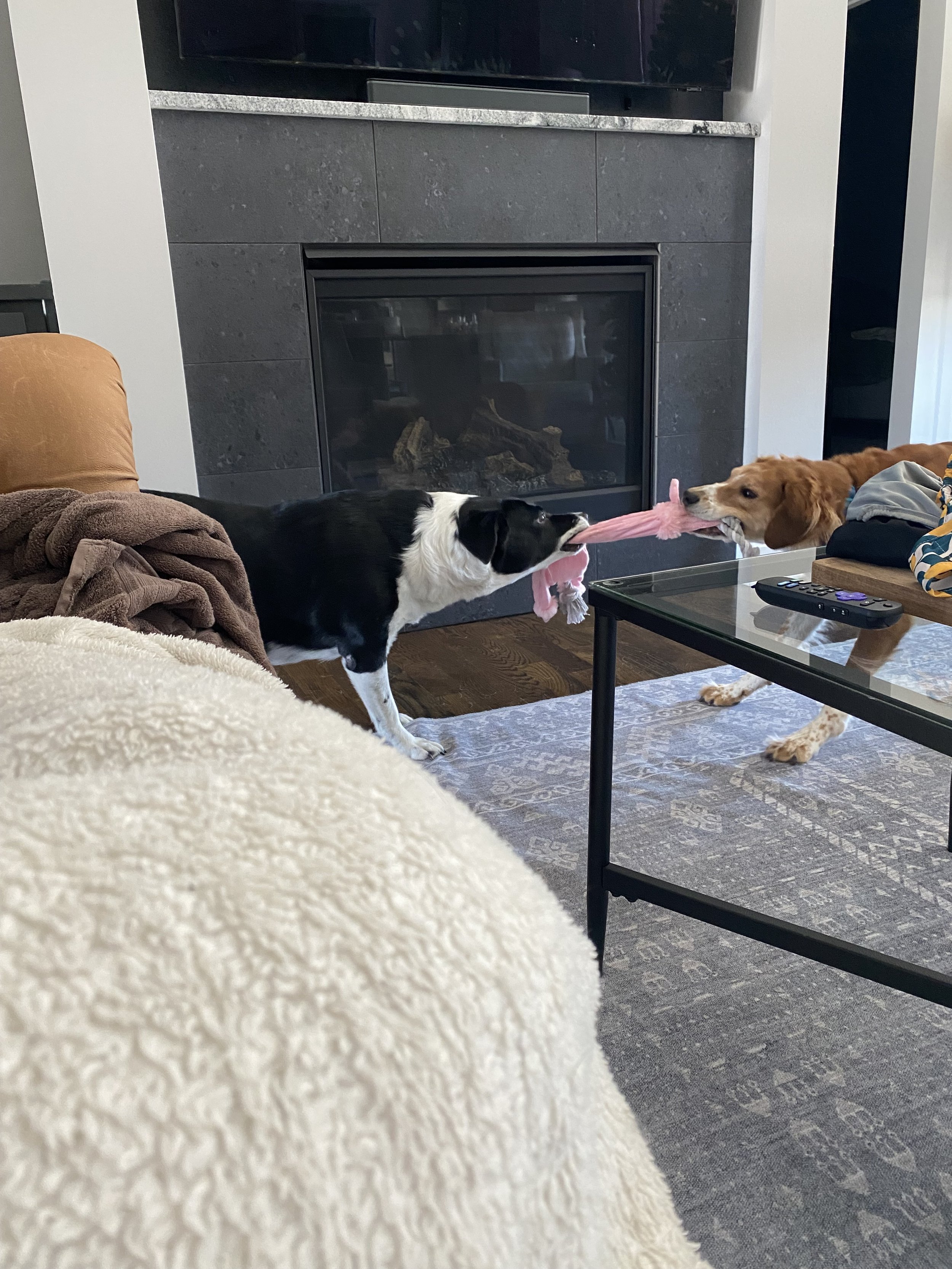
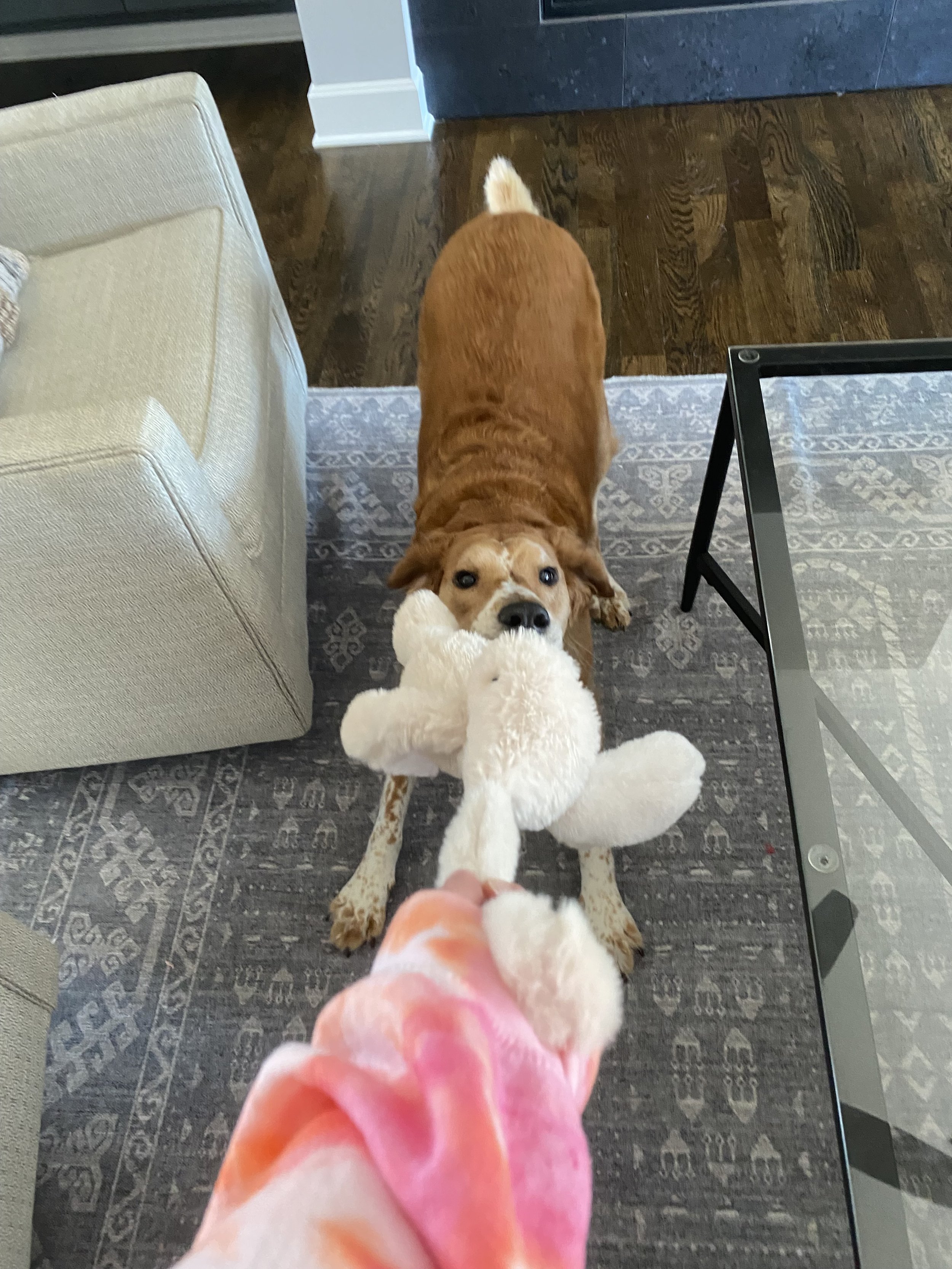
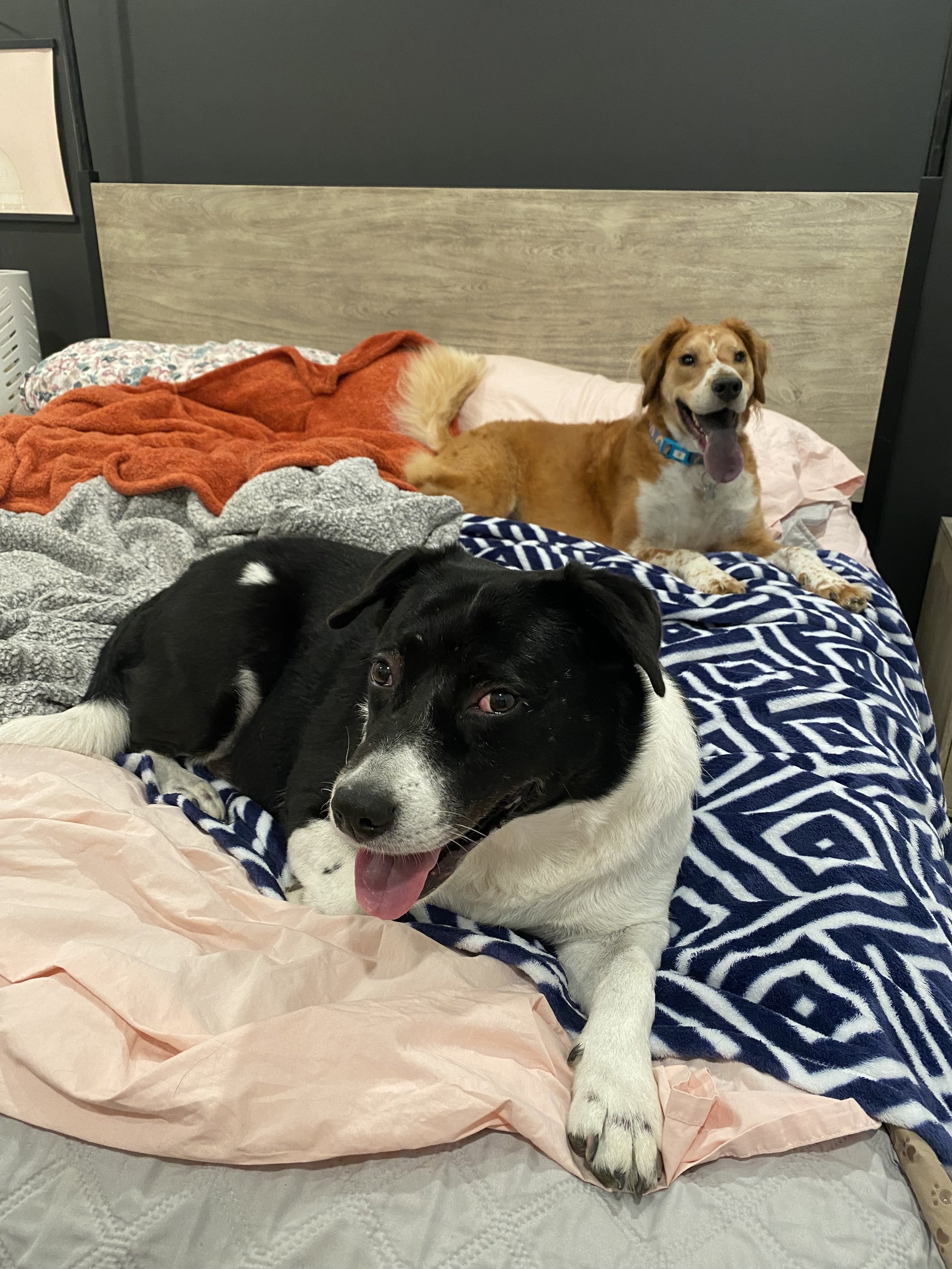
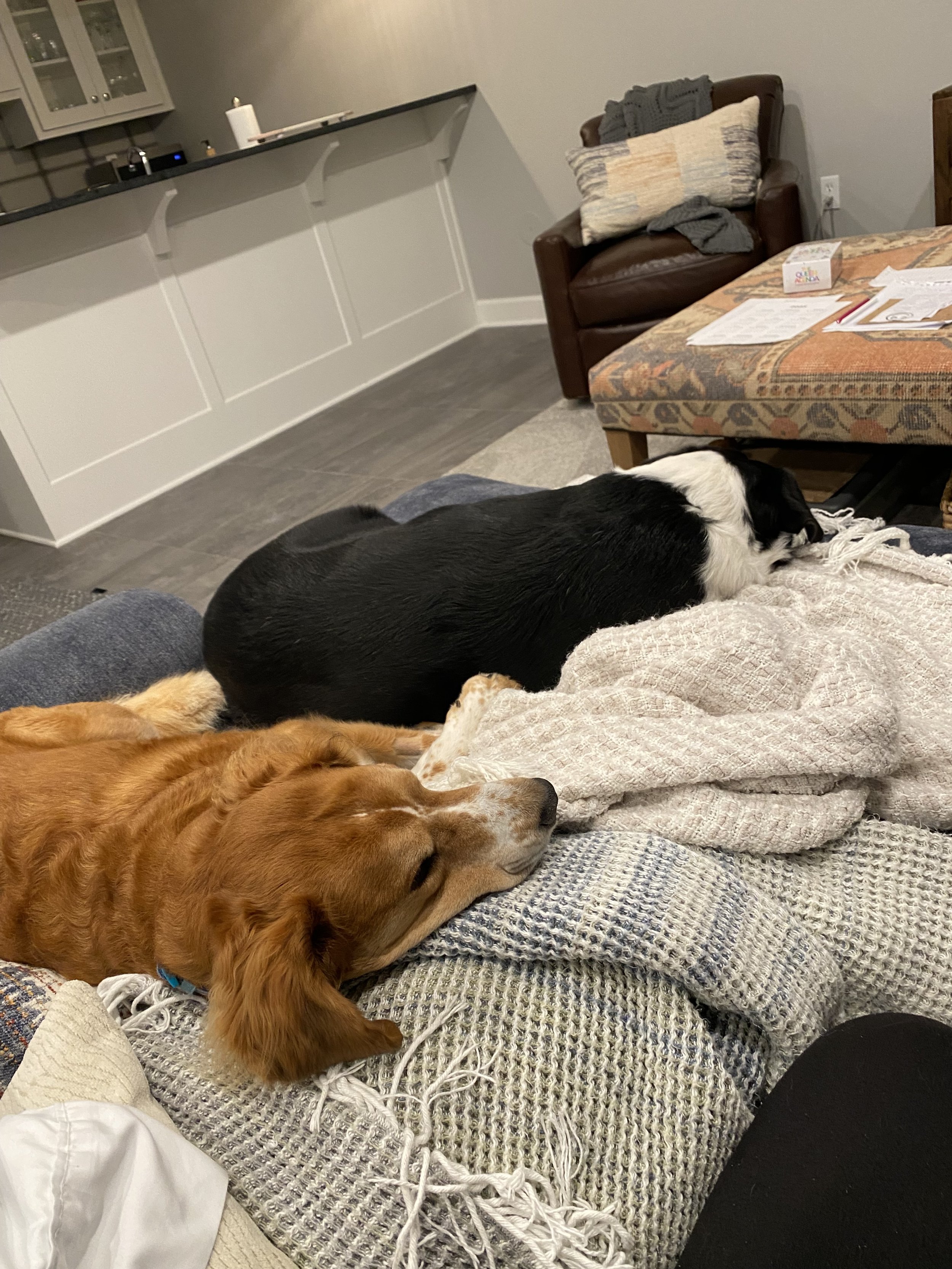
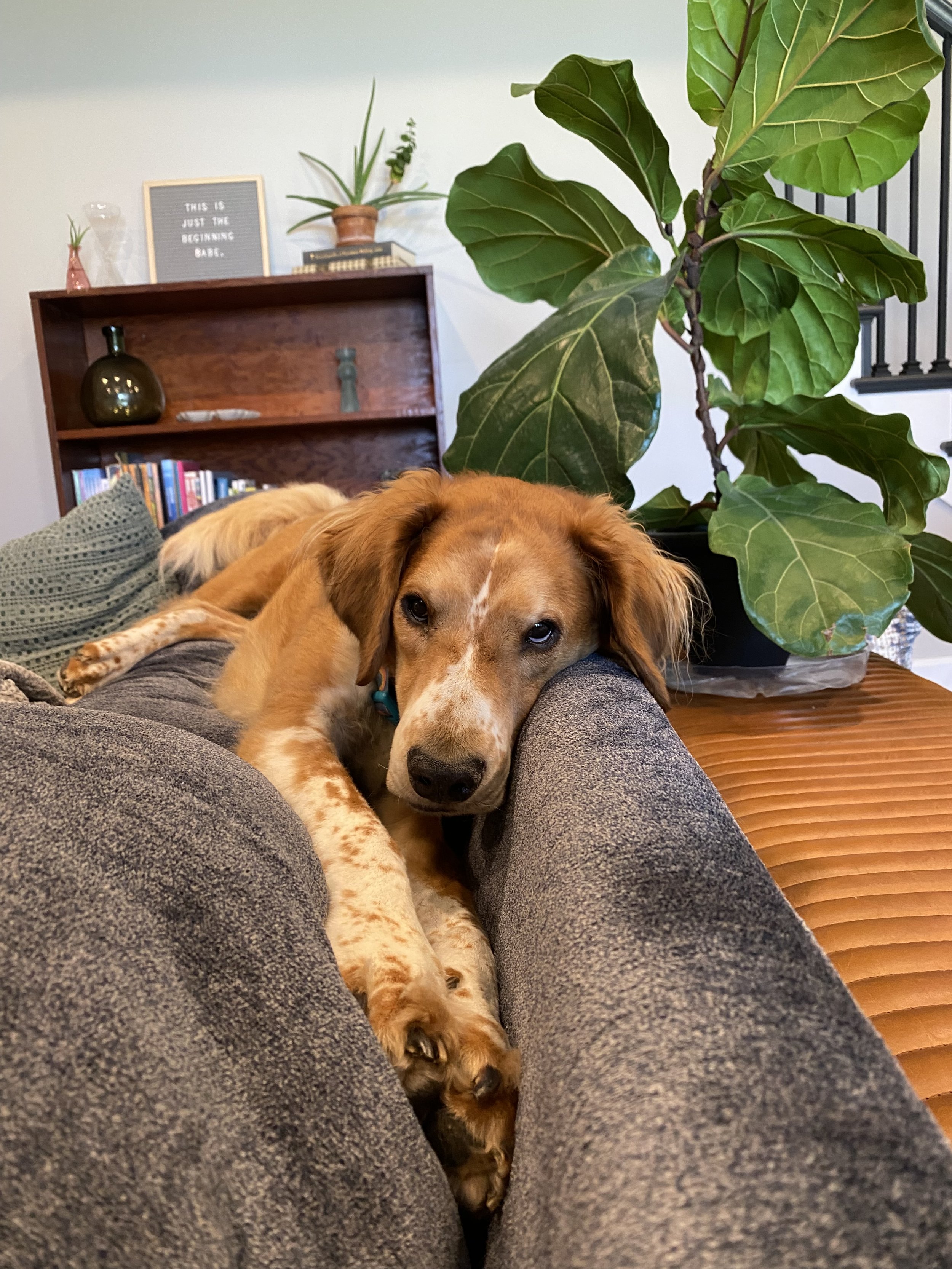
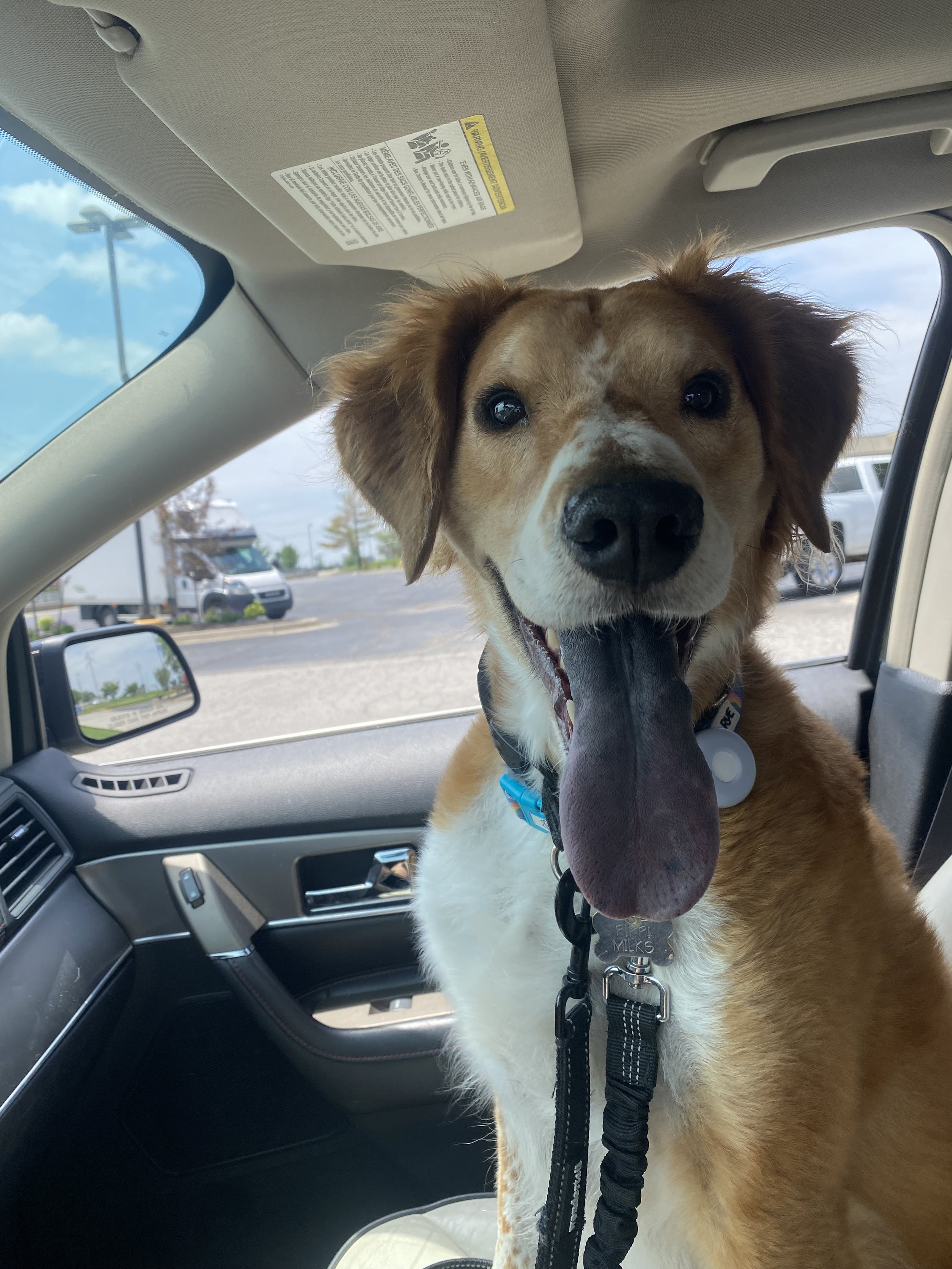
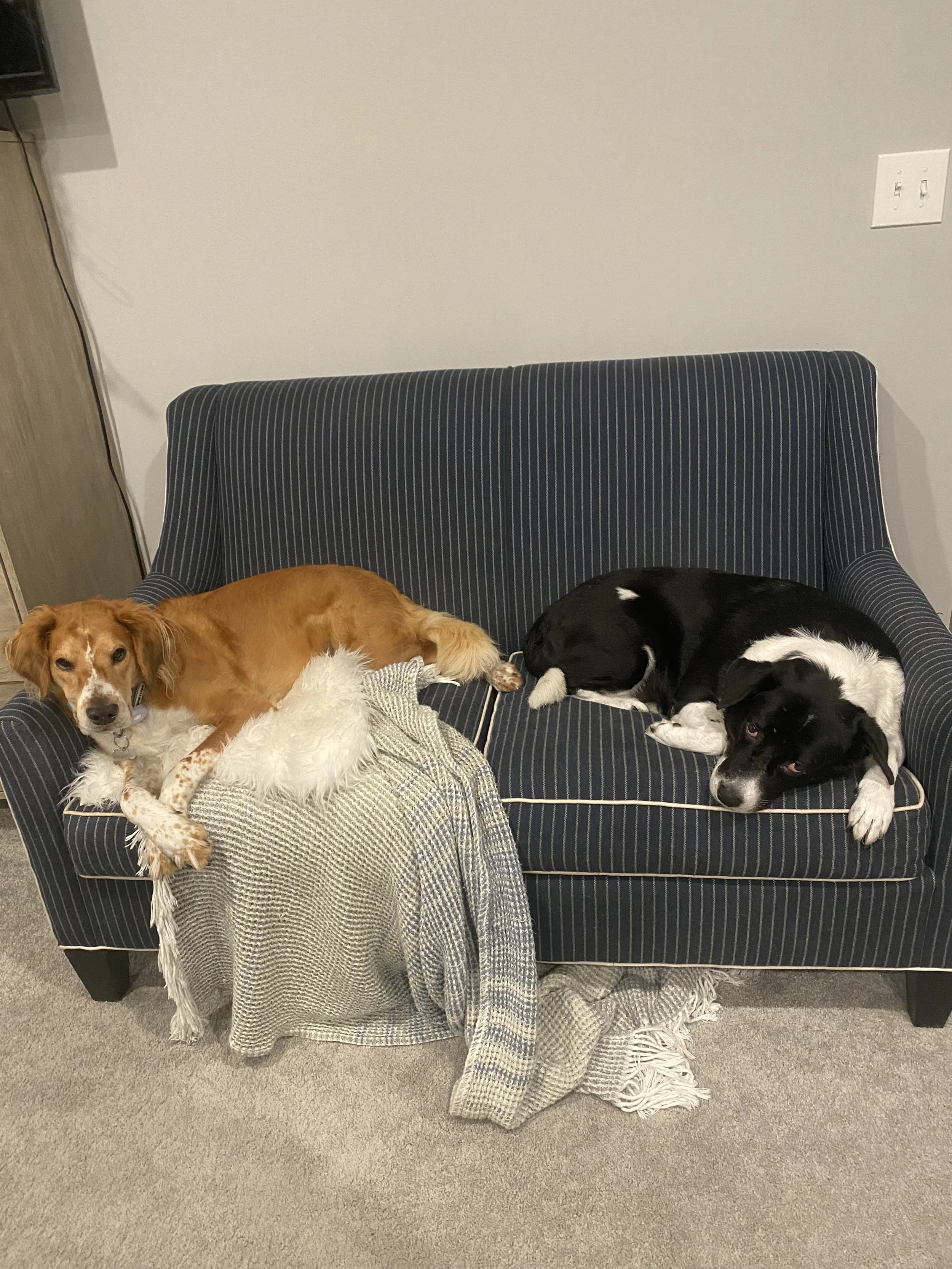
My Training + Qualifications
-
I hold a master's degree in Interior Architecture and Product Design from Kansas State University. Over five years I learned how to apply the design process to make things as small as pasta noodles and as big as buildings.
I began researching trauma informed design in educational environments in 2018 where I learned of the school to prison pipeline. This directly inspired my thesis research on trauma informed design in police buildings in 2019. This was the first time I applied principles from Somatic Experiencing® to design, and since graduating in 2020 I have continued my research professionally as a trauma informed designer.
I research the design process and how nervous system regulation and trauma healing can be applied to it. This work can be applied to any scale of design from products to interior spaces to buildings.
-
Somatic Experiencing (or SE) is a three-year professional training in trauma healing. It's designed for therapists and bodyworkers (massage therapists, physical therapists, etc.) to understand how stress is stored in, and can be released from, our bodies. Read more about how it works here.
I have completed the 3 year training and have done over 200 hours of personal sessions with my therapist. This work is not just something I preach- it's a practice that has transformed my life. I hope to complete my hours and become a certified SEP in 2025. (The sessions and consultation cost about $100-$150 each, if you would like to help me complete my SEP email me or venmo me @cleverbabesco with SEP as the subject)
My somatic work is currently used in group settings and is complimentary to people who are in individual therapy or have been in cognitive styles of therapy and stopped because they outgrew that style of support.
-
In my somatic work it is important to me that I establish certain conditions and expectations before, during, and after I am offering my support.
Consent. The most important part of my somatic work is respecting any "no" I receive- including indirect no's such as people scrolling on their phone instead of participating, hesitation, questioning, etc. I expect (and support) my clients to say no to anything that feels uncomfortable or unsafe. However, our society is so anti consent that many of us struggle to say no directly, and my goal is to help clients reconnect with what yes and no feel like in their body then practice saying yes to what they like and no to what they don't. If consent is violated it is never too late to reach out and I will always be grateful for the opportunity to apologize, take responsibility, and learn how to offer better support to others in the future.
The client is the expert in their experience. I view my role as a facilitator between my client and their intuition. I am providing education and tools for my clients to interpret the information their nervous system is giving them about what needs they have that aren't being met. It isn't my job to tell anyone how they feel, what they need, or how to get their needs met. It is my job to listen, notice, reflect, and ask questions that help empower clients to get their needs met.
I'm human, I will make mistakes, and I am always open to feedback. While I do my due diligence to take care of my nervous system, continue my education, and not perpetuate systems of harm I am still liable to fuck up. I welcome constructive criticism of my work from non clients and feedback of any kind from my clients. It is my job to listen without becoming defensive, apologize, and offer repair to improve the relationship (if that is desired) when I cause harm to any of my clients.
I have personally received this kind of care after conflict with my therapist and it was so impactful. I realized I had never been able to express when harm was caused without being defensive of my experience. The ability to express harm and assert my needs without defensiveness has made my life so much less shitty. I hope if I cause harm I can provide you the space to express yourself without need for justification or explanation.
-
True somatic work is liberation work. Our bodies feel when they are being exploited by capitalism, endangered by racism, and made to feel small by patriarchy. These systems contribute to our growing feelings of anxiety, depression, dissociation, and hopelessness. Our bodies are telling us that the world we live in is not compatible with feelings of safety, growth, community, and being loved the way we yearn for.
As a somatic practitioner it is my role to bring awareness to how these systems are harmful to our mental health, and to not participate in cycles of harm. I have been doing antiracism work since 2019 and work to decenter whiteness in both my creative and somatic work. I am passionate about implementing liberation strategy in the way I run my business. I believe change starts now- within myself and my business.
I am very lucky to have learned SE from Mahshid Hager who used her experience as an immigrant and as an experienced practitioner working with people of color to educate my predominately white cohort on best practices and important considerations for doing SE with clients experiencing social and historical trauma. I am continuing to learn more about social and historical trauma and how to best support clients experiencing it.
-
To me, healing involves slowing down, listening to what my body needs, and receiving support. Any time I do any of the those things I am practicing healing. I practice at least weekly in therapy but often daily by reaching out to friends, getting massages, taking my meds, and cuddling my dogs.
I don't call it a healing journey because there is no destination. It is a life long practice and commitment to myself.
Checking My Privilege:
My Privilege:
My body and identity holds inherent privilege as a white cis-gendered woman. I am natural born citizen to the US and speak English as my first language. I have never been discriminated against for how I look, where I came from, or how I communicate.
I have the tremendous privilege of having an upper middle class, well educated, financially supportive family. I have received significant financial support from my parents, who had financial support from their parents and so on. I have relationships with several generations of very generous and supportive family. They provide emotional, physical, and financial support when they can.
I did nothing to “earn” these privileges. I was granted them by the luck of being born into my family. These privileges have made owning a business not only possible, but a hell of a lot easier.
The privilege I hold in my identity and from my family help mitigate the struggles I face as a queer, neurodivergent entrepreneur.
My Professional Support System:
I am a solopreneur, but I do not do it all alone.
My access to higher education gave me a network of professional artists and designers who never hesitate to help me for free. I have received ideas, advice, and hours of free labor from many people who support my mission. Through this network I was connected with Elena, my Clever Consultant, who helps my projects move faster and with more ease.
My business would not run without the mental health and somatic support I receive. Because of my mom’s access to higher education and resulting career as a trauma therapist, I was connected with my therapist, Naomi. We have worked together since 2019. My time with her has given me the greatest gift- trusting my knowing.
Our work together coincides with the beginning of my research on trauma informed design, and training in Somatic Experiencing®. These things are now the foundation of my business. I am so thankful for the health insurance that allowed me this care, and a family that supported me in pursuing mental health care.
Land Acknowledgment:
To the best of my knowledge (which is incredibly limited) I live and work on the land of the Washtáge Moⁿzháⁿ (Kaw / Kansa), 𐓏𐒰𐓓𐒰𐓓𐒷 𐒼𐓂𐓊𐒻 𐓆𐒻𐒿𐒷 𐓀𐒰^𐓓𐒰^(Osage), Jíwere–Ñút’achi Máyaⁿ (Otoe-Missouria), Očhéthi Šakówiŋ, and Kiikaapoi (Kickapoo) people.
Learn more about what land you occupy here.
Learn about how Native Americans lost territory to the US here (10 minute video).
Learn more about the importance and meaning of land acknowledgment here.



